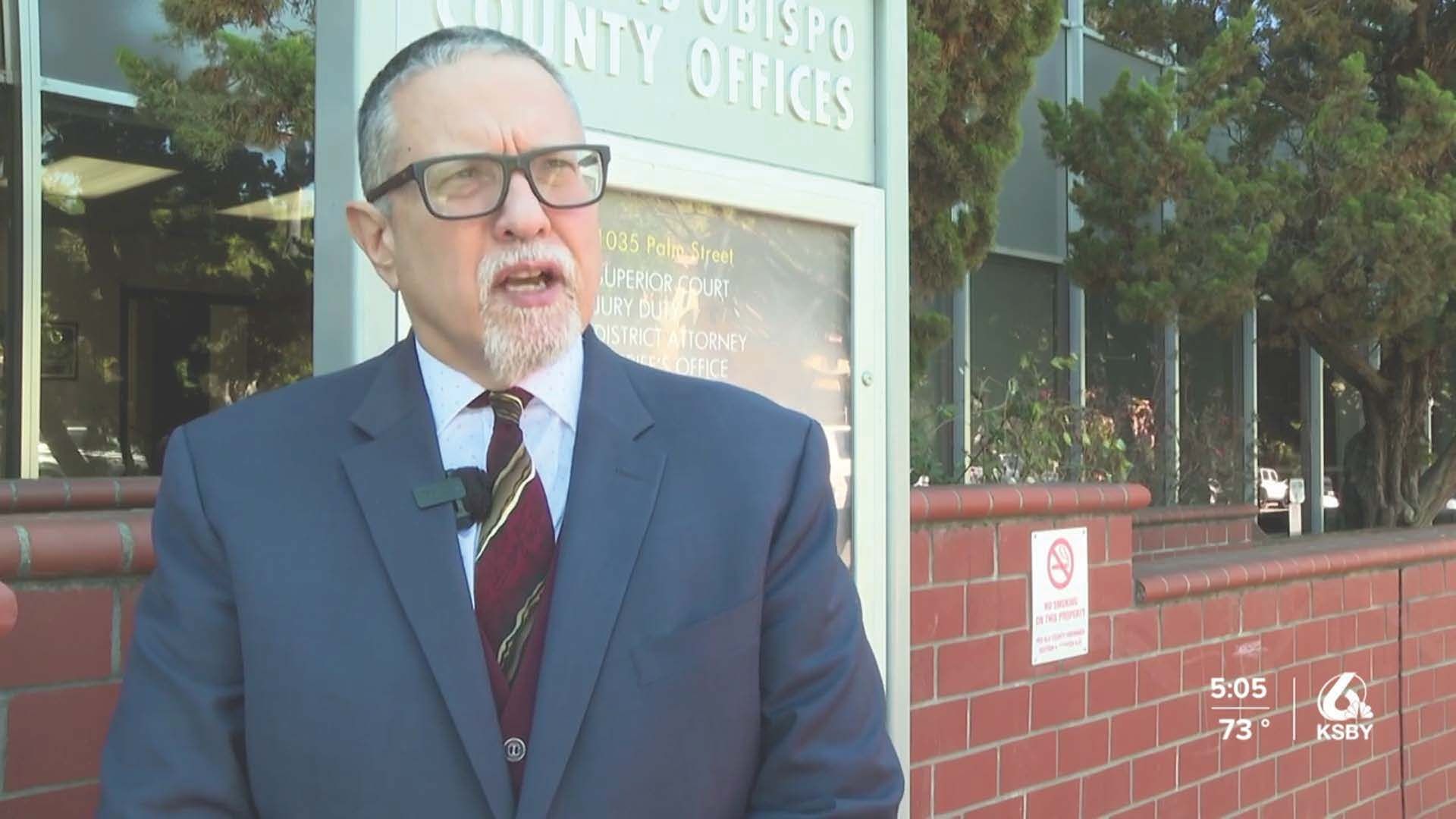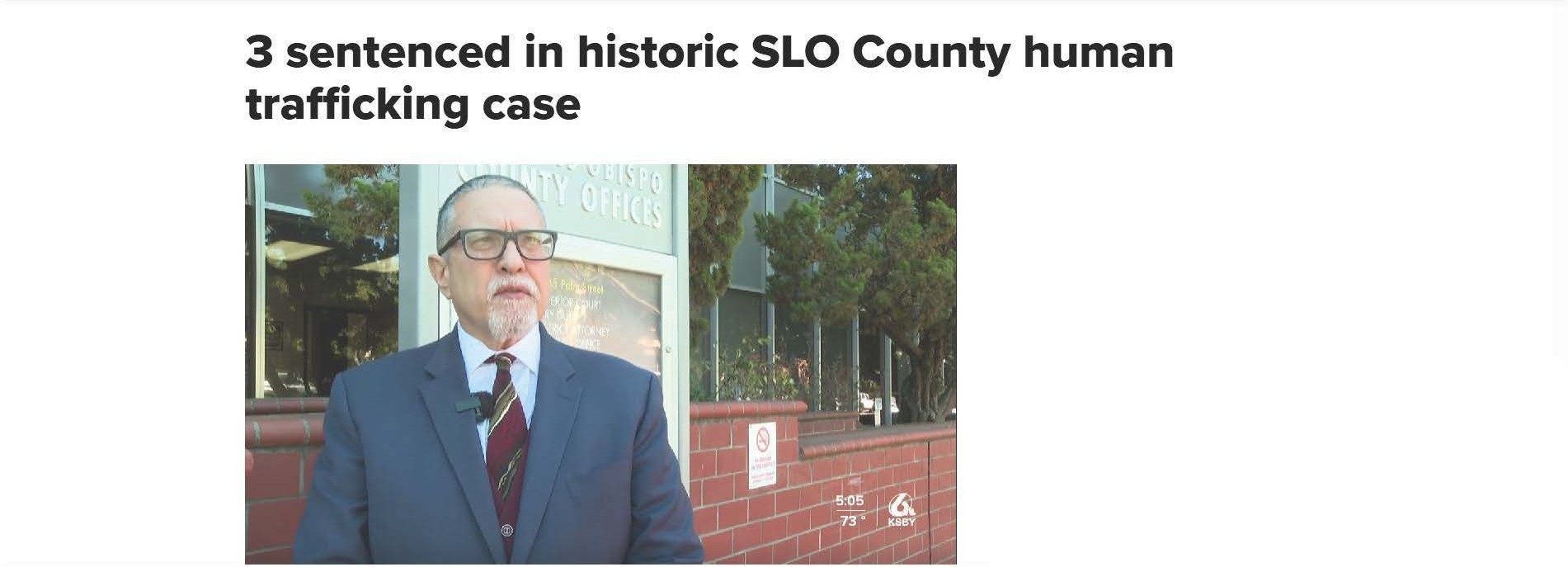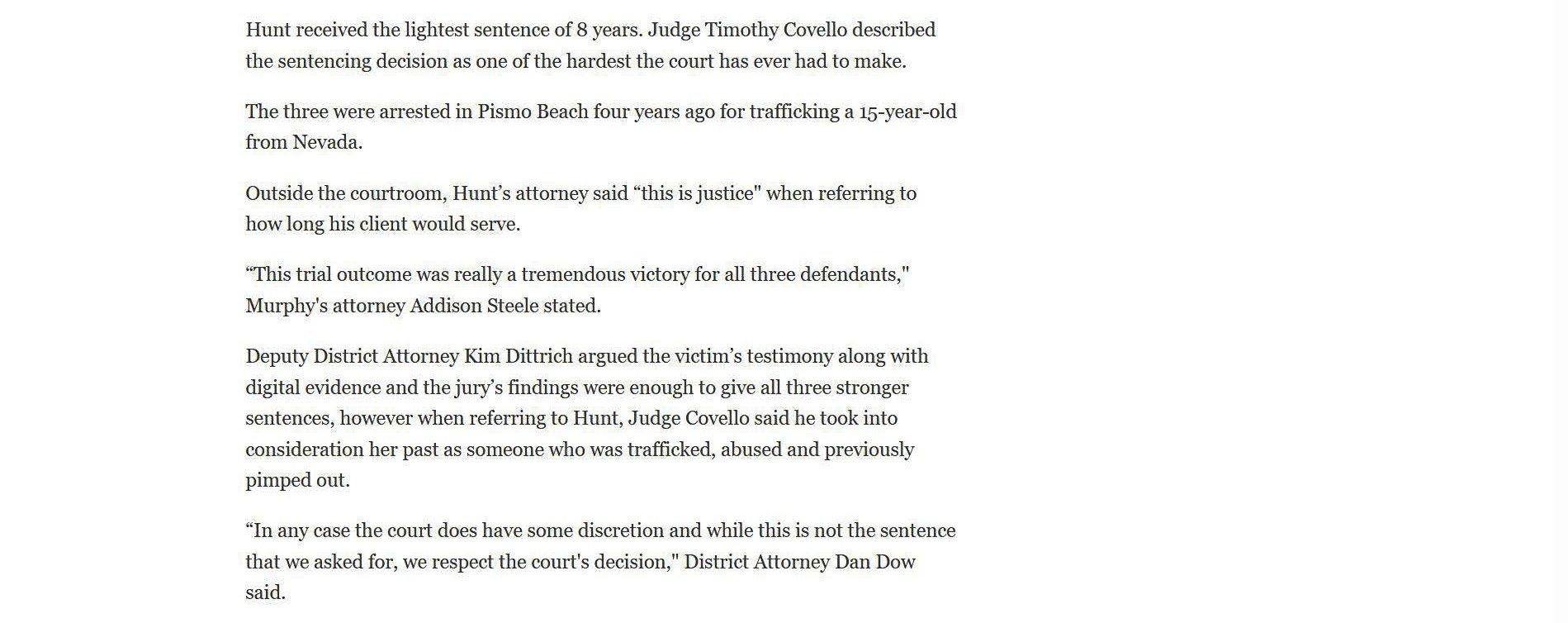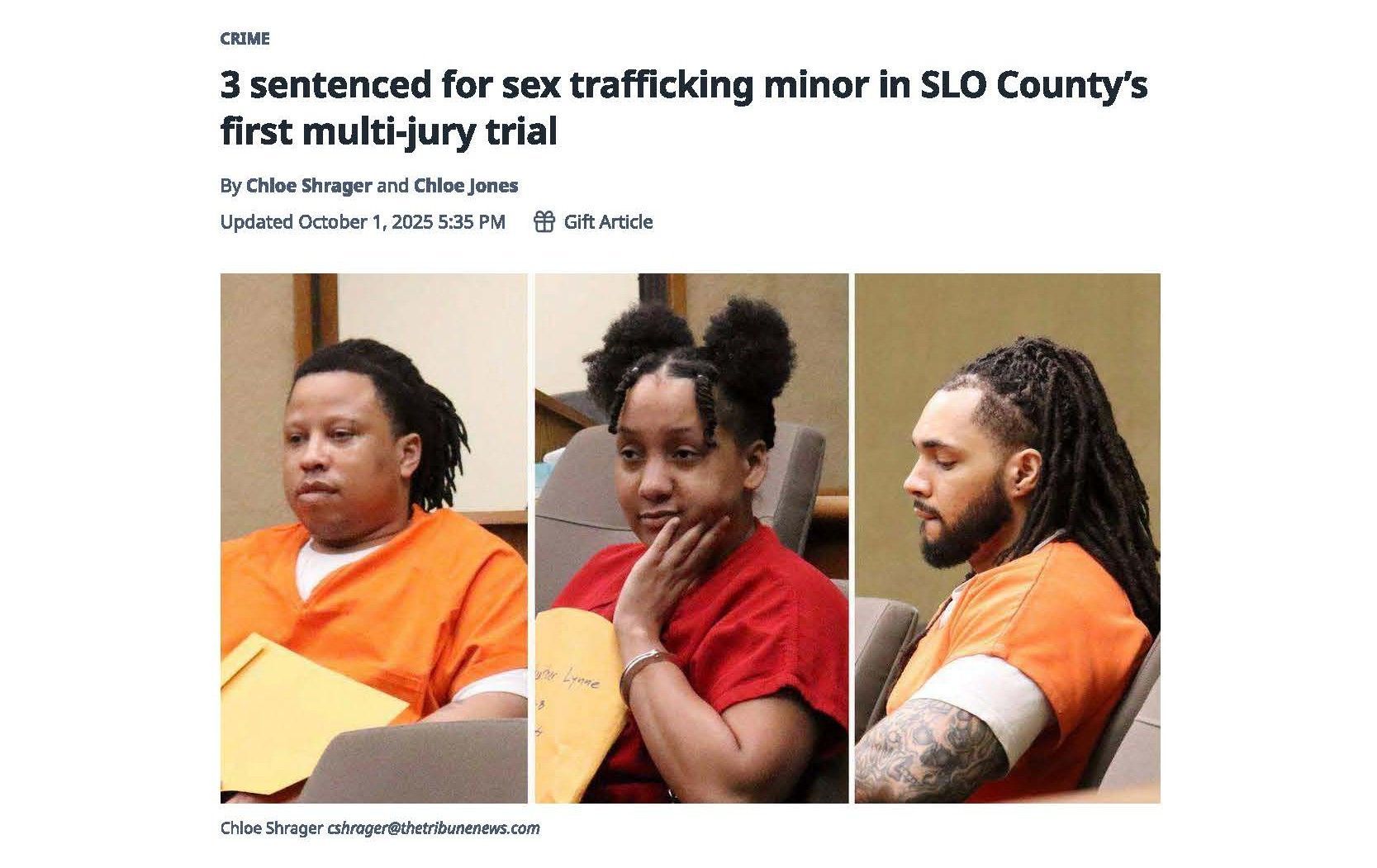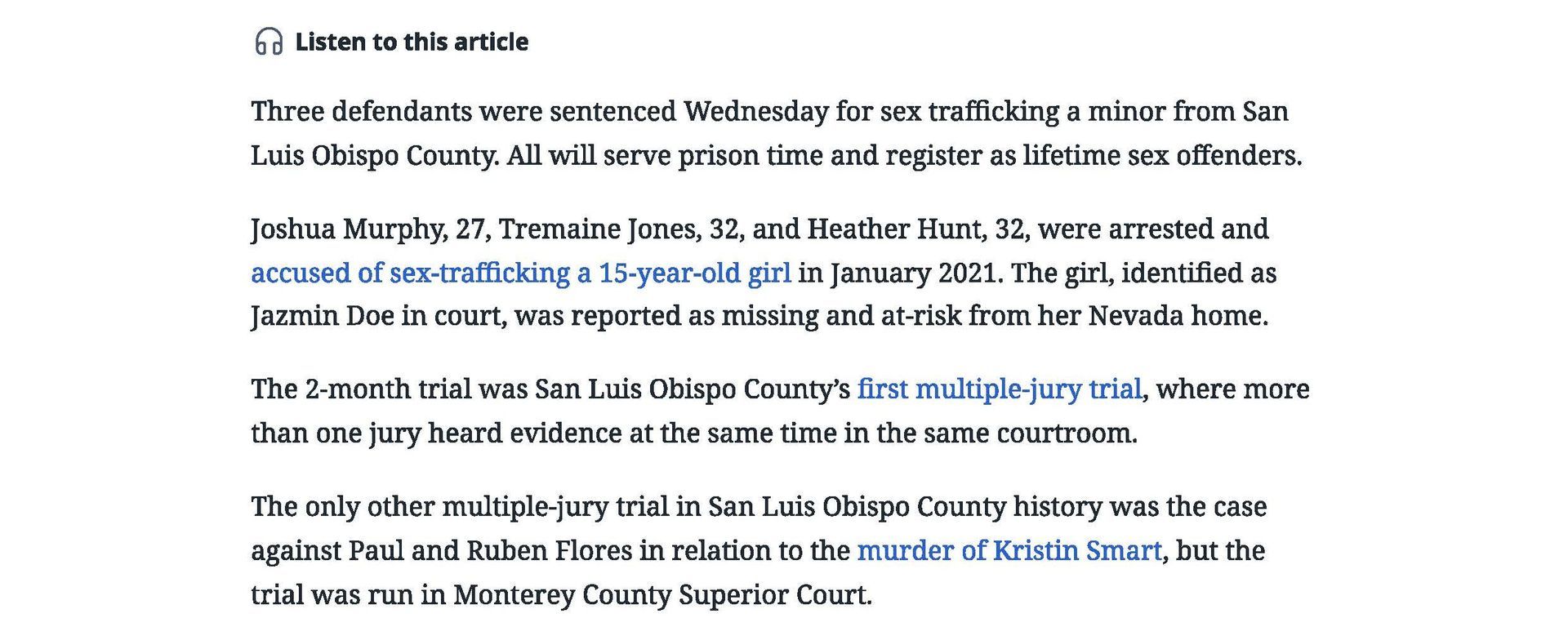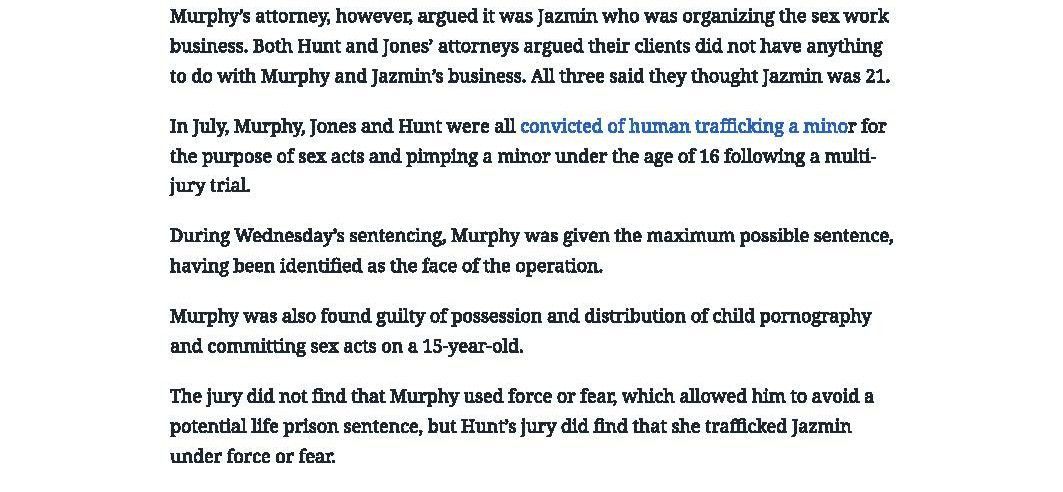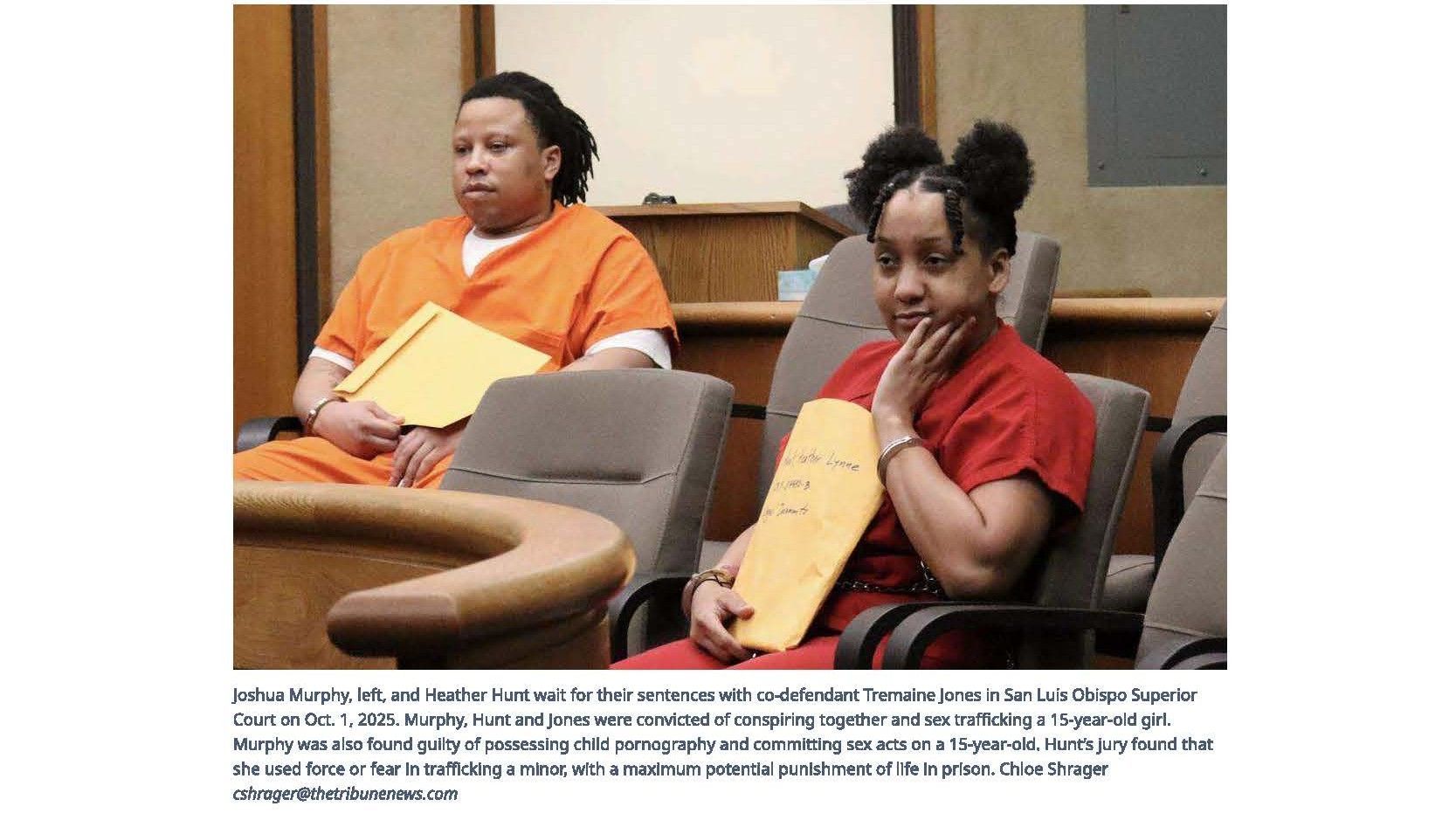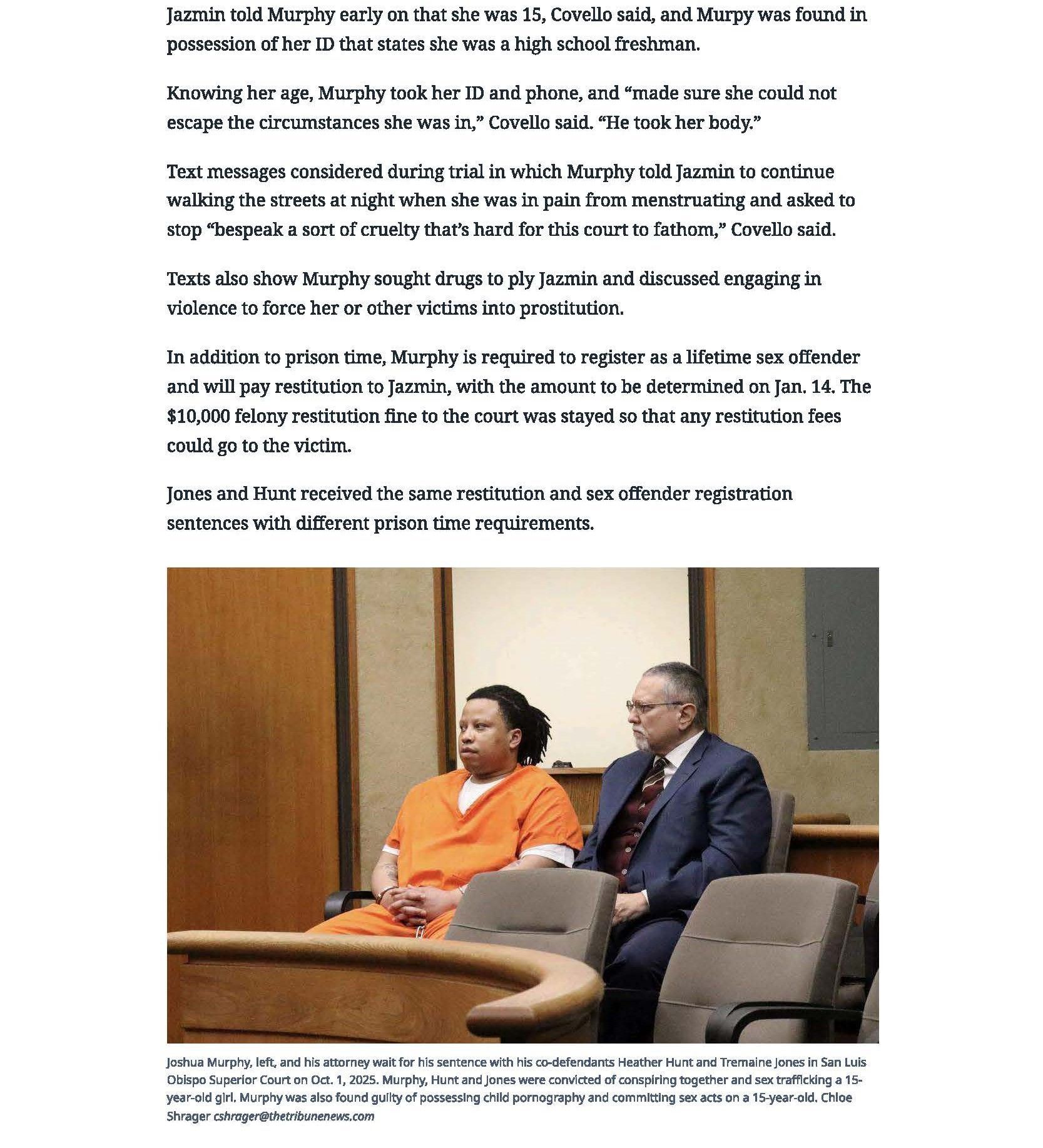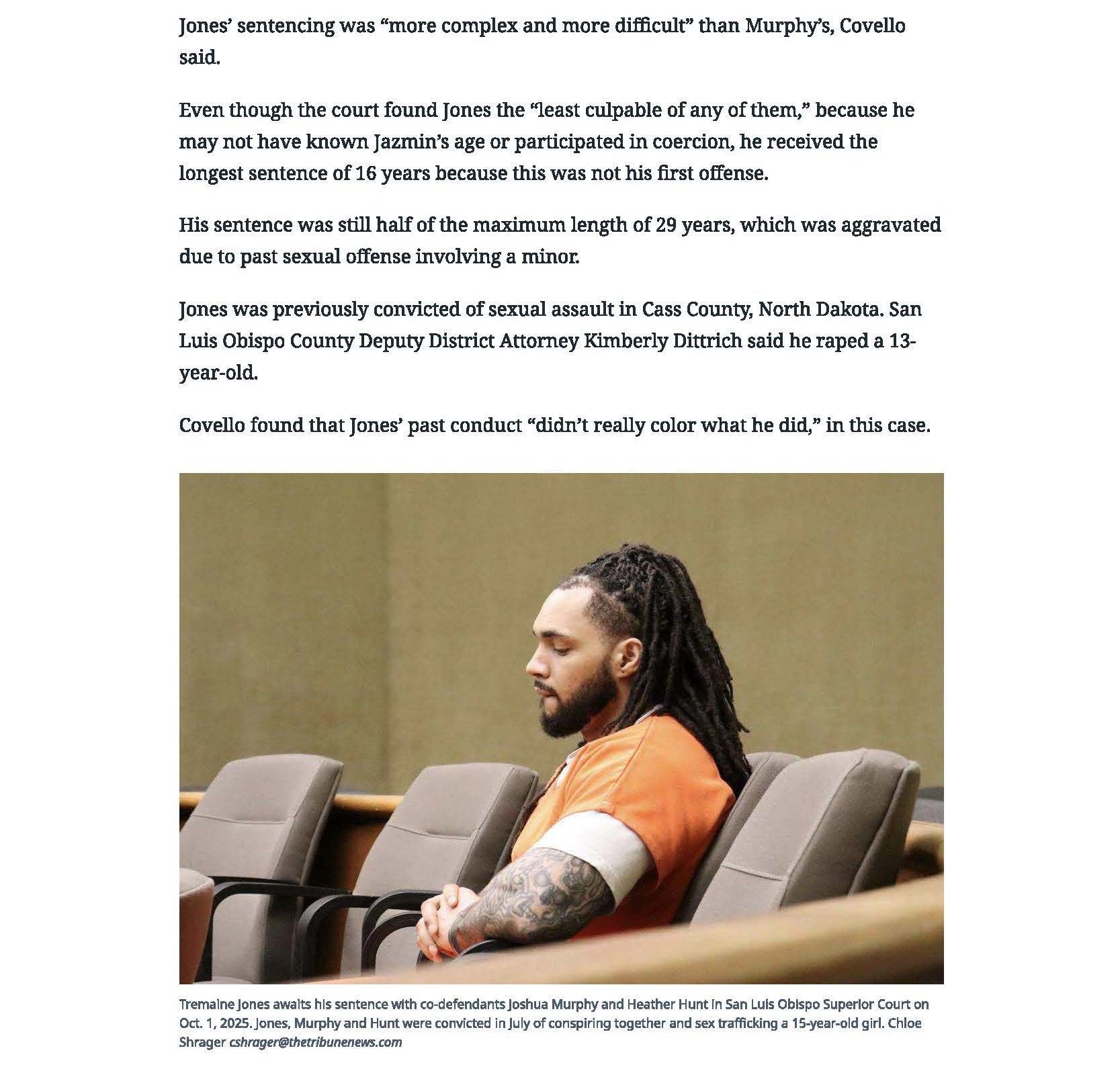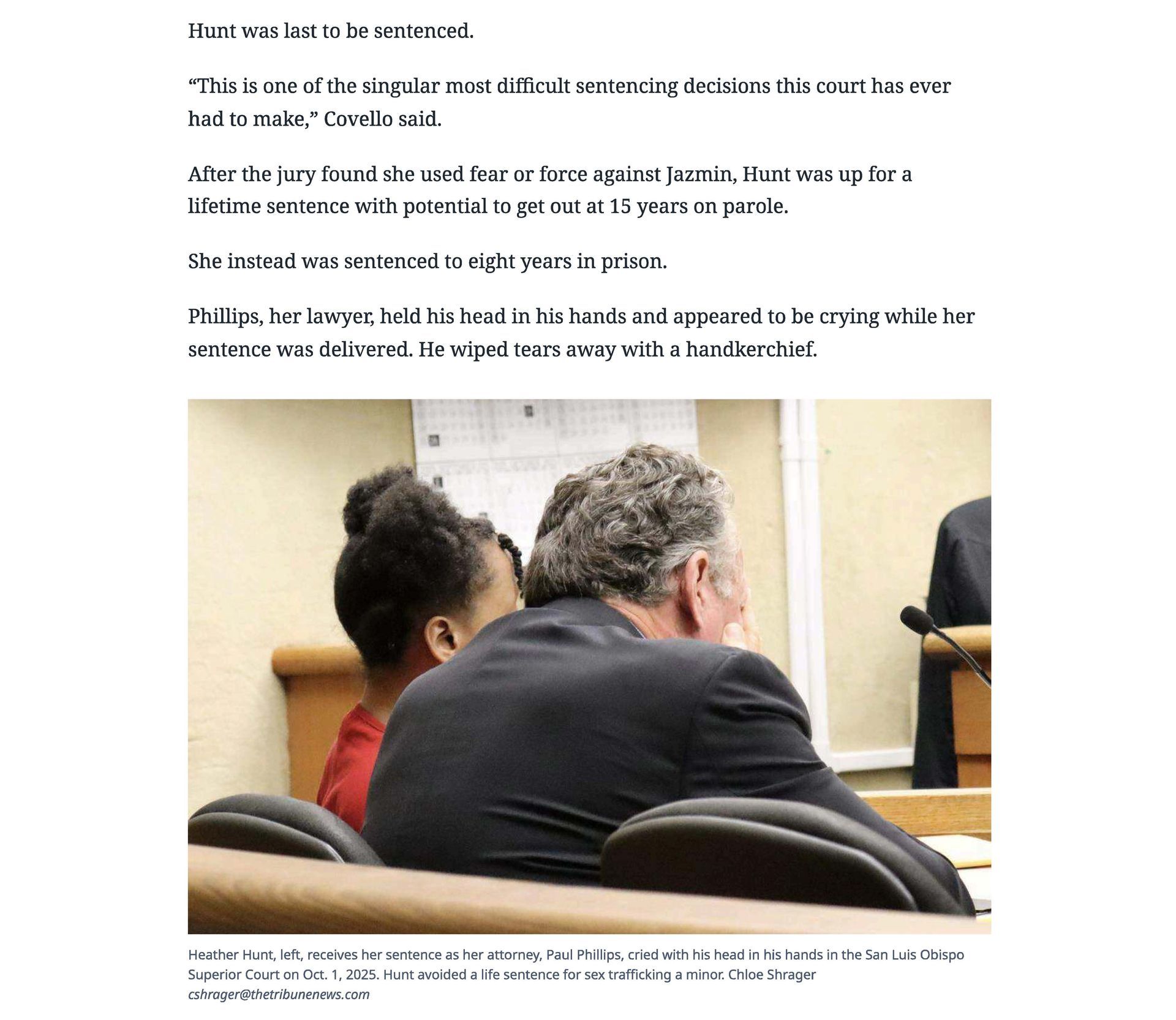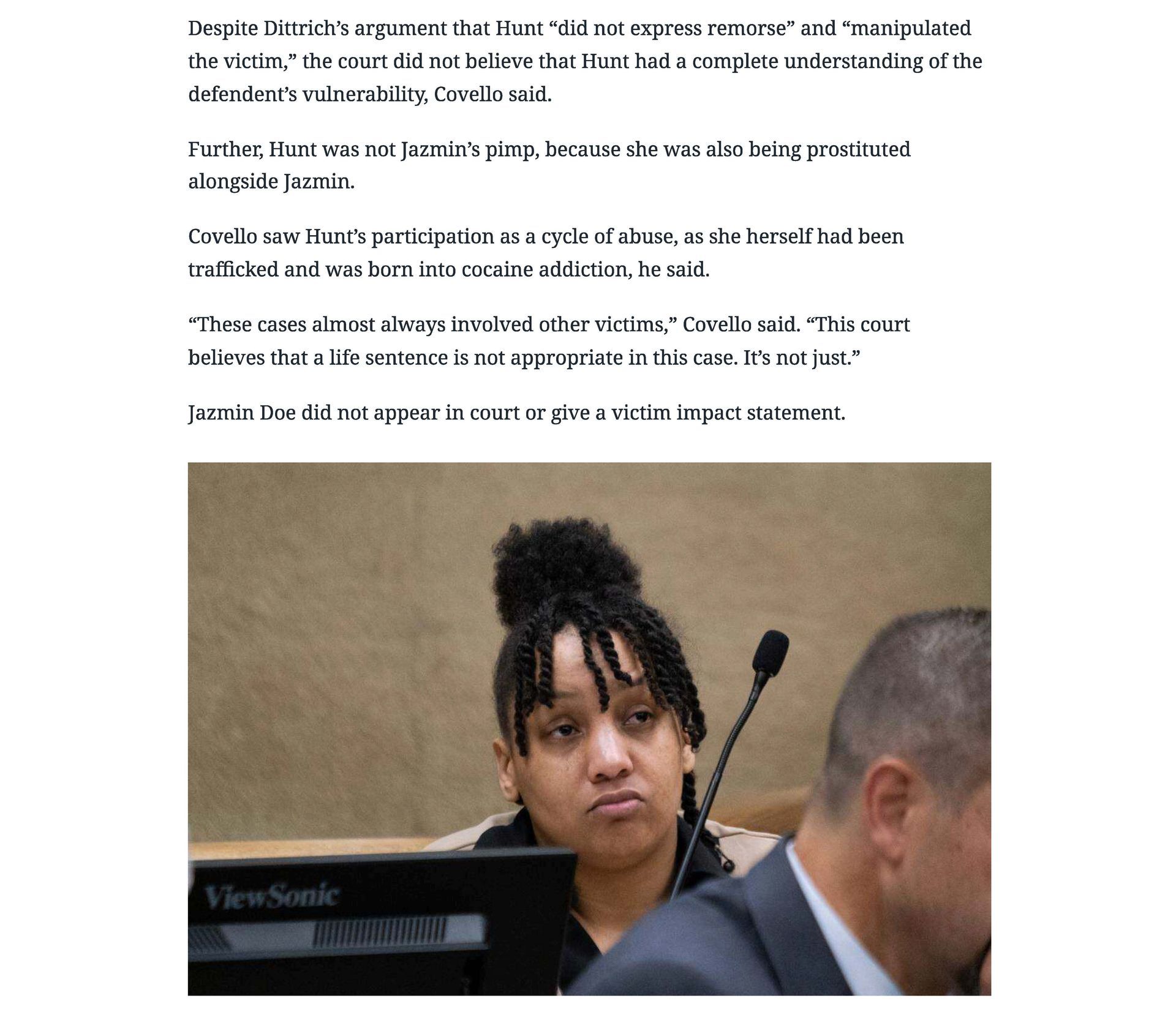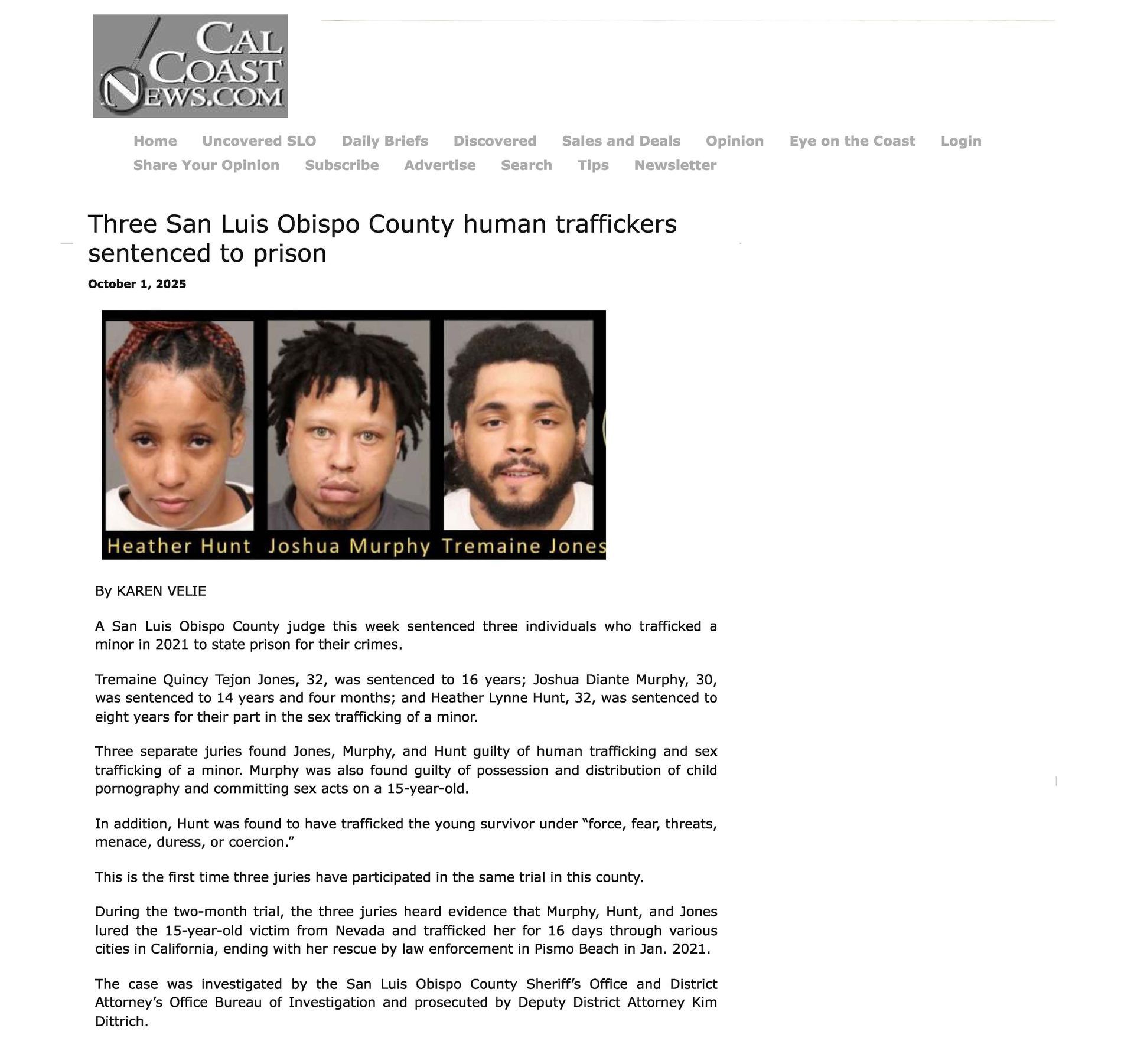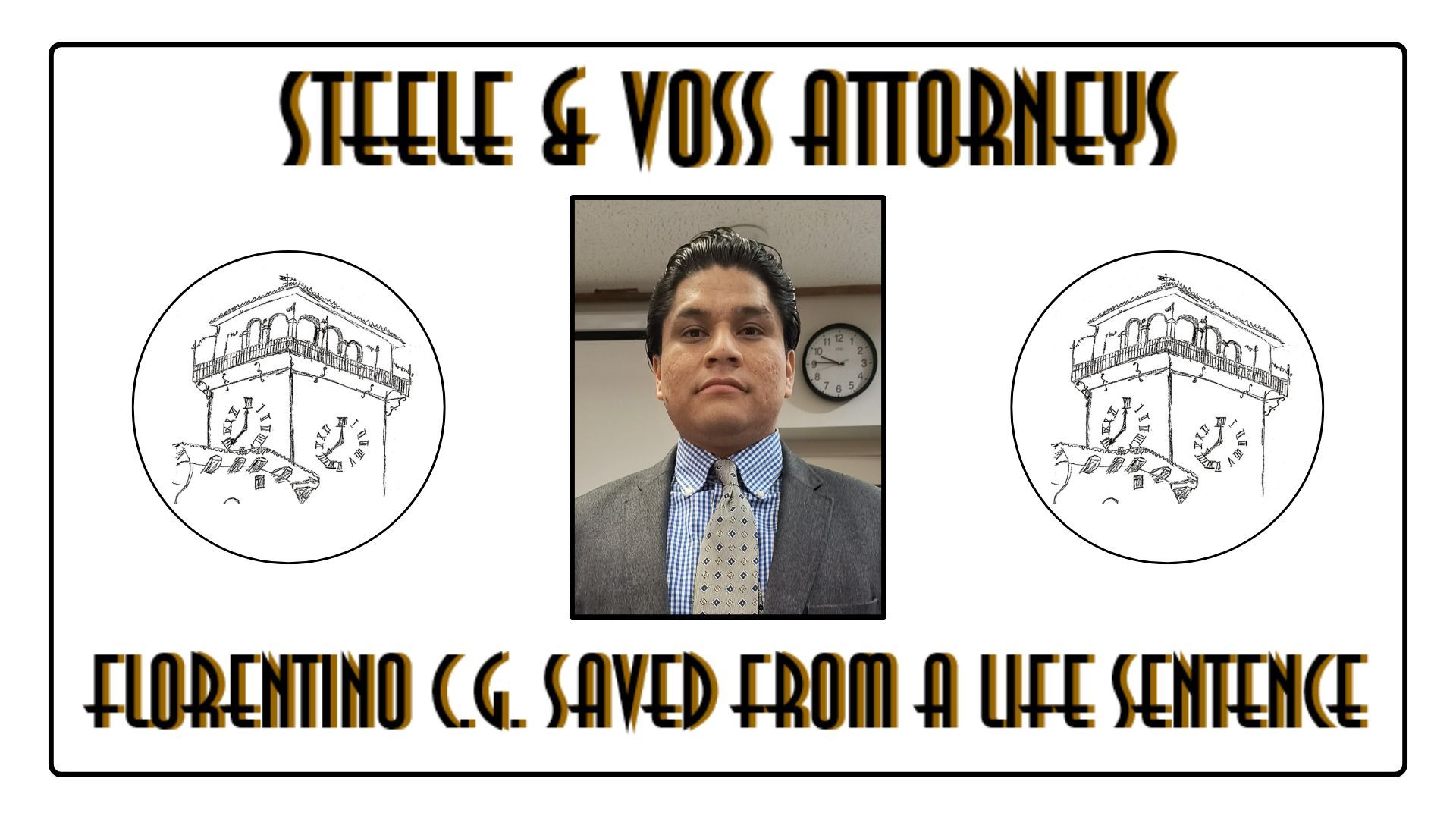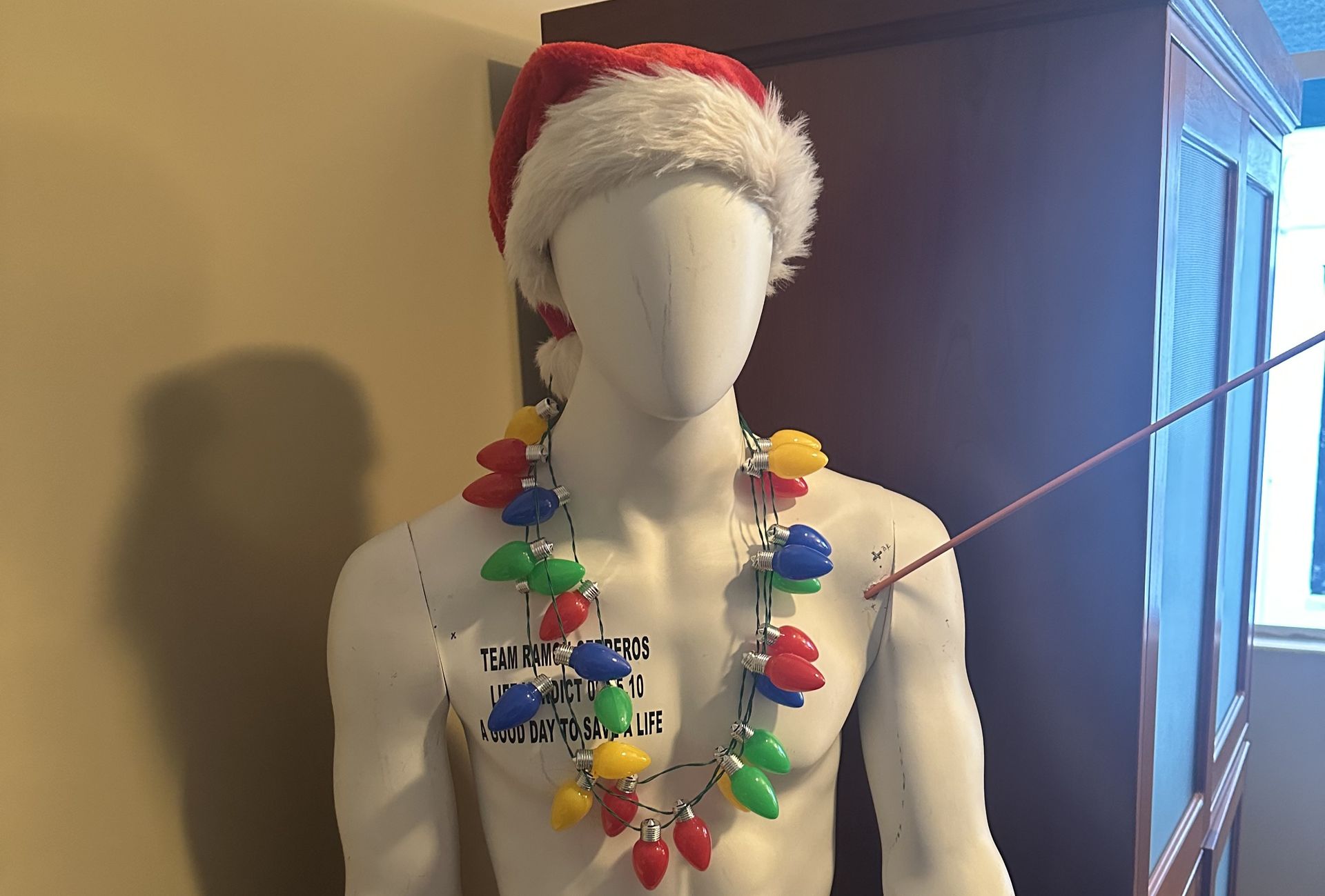Joshua M. 23F-04550-C, on July 24, 2025 the special allegation that would have subjected him to life in prison was found NOT true
This is a trial where Addison saved his client from a life in prison sentence
Below is the press release that the three firms issued after the sentencing
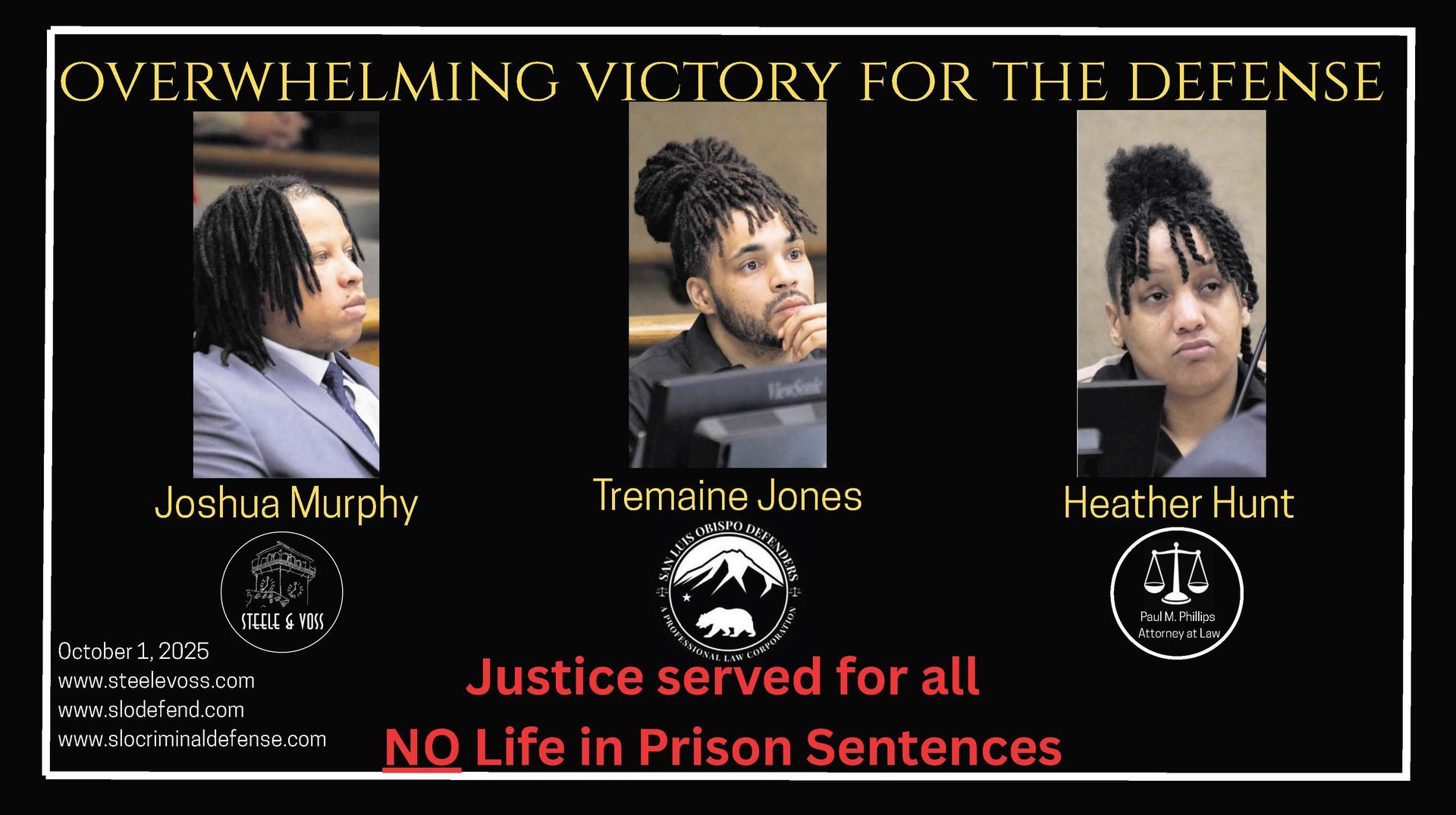
- Charges: Human Trafficking (Penal Code § 236.1(c)(2)), pimping a minor (Penal Code § 266h(b)(2)), possession of child pornography (Penal Code § 311.11(a)), distributing child pornography (Penal Code § 311.2(b)) and lewd act with a minor (Penal Code § 288(c)(1)). The case was both overcharged and creatively charged. For example, the possession and distribution of child pornography charges are meant for pedophiles that collect and sell or trade child pornography. In this case the "child pornography" was photos that were used in internet "escort" advertisements, many of which were selfies taken by the complaining witness (what district attorneys call "victim"), Jazmin Doe, and given to Josh. The "distribution" was the placing of the advertisements, which the complaining witness testified that she did and sometimes Josh did them for her. Another example is the lewd act with a minor charge. This is usually charged under Penal Code § 261.5, the typical charge for when a young person in his or her twenties has sex with a high school age person. An element of Penal Code § 261.5 is that the adult either needs to know, or a reasonable person would have known that the minor was a minor. In this case Jazmin Doe in no way resembled a minor, there was no chance that the DDA was going to convince twelve jurors that a reasonable person would have known she was a minor. However lewd act with a minor is essentially a strict liability crime, which means that it doesn't matter if the person accused knew the person was a minor, or if a reasonable person would have known the person was a minor, all the DDA has to prove is that the person was a minor. That means that not only was Josh automatically guilty for having sex with Jazmin Doe even though no reasonable person would have thought she was a minor, it means that all of her tricks (prostitution customers) were also guilty of the same crime, even though, they, like Josh, could not have been in any way expected to know that she was minor based on the way she looked.
- Exposure: Josh was facing seventeen years four months to life in prison.
- Outcome: In order to be convicted of a violation of Penal Code § 236.1(c)(2), human trafficking by force, fear, violence or coercion, the jury had to make a finding that there was force, fear, violence or coercion. If the jury made that finding Josh was subject to a mandatory sentence of fifteen years to life in prison. The jury found that allegation not true, so by operation of law, Josh was only convicted of a lesser offense of Penal Code § 236.1(c)(1), which was a maximum of twelve year WITHOUT a life sentence. He was sentenced in total to fourteen years four months at fifty percent. He had two years credit so he will be home in five years instead of having a life sentence and hoping to be granted parole at a parole hearing every two years after serving eighty-five percent of seventeen years four months.
October 1, 2025. This was a long hard fought human trafficking jury trial that Addison won. Any time when the client is facing a life in prison sentence and is saved from a life in prison, that is an overwhelming victory. This was a three co-defendants, three juries trial that started on May 19, 2025 and ended on July 24, 2025 with a verdict that saved Josh from a life sentence. The accusation was that Josh and his co-defendants went to Nevada to get a prostitute to transport to California in order to sex traffic her around the state. In reality, as came out in court during the trial, the "victim" was an experienced prostitute that Josh met on a dating site. Josh and his co-defendants picked up the prostitute because she wanted to travel around with them. As they traveled the prostitute, who knew the "game" (the business of prostitution) in California well, would leave the group to work the "blade" (a place where street prostitutes walk to solicit customers) in whichever city they happened to be in. She also placed internet prostitution advertisements. Eventually Josh began helping the prostitute by giving her rides to her customers or staying nearby as "security." The prostitute was caught in a police sting when an undercover detective answered one of her internet prostitution advertisements.
Human trafficking has become the crime of the day for law enforcement. They don't have much interest in catching prostitutes, they want to catch pimps so they can be charged with human trafficking. When the prostitute was caught, what the detectives, including an FBI agent, were most interested in was finding out if she had a pimp and who was that person. Pimping as defined by California law is not what most people believe it is. The law casts a wide net because the definition is essentially if a person gains or is supported in any way by the proceeds of a prostitute's work, that person is a pimp. An example is a person, we'll call him Adam, has a friend that's a prostitute, we'll call her Betty, and Betty in any way uses her prostitution income to benefit Adam, he's a pimp. So if Adam knows that Betty went to work prostituting, and at the end of her work day, Betty says, "Hey let's go get a cup of coffee," and Adam says, "Sure, I'll join you for a coffee." Then when they get to Starbucks, Betty says, "Let me buy today, I had a good night, it's my treat," and Adam accepts a cup of coffee from her, he's now a pimp. He now has been supported in whole or in part by Betty's work as a prostitute and under California law is a pimp. That may sound extreme, but that's the law that district attorneys rely on to convict people that they accuse of being a pimp. Human trafficking also is not what people think it is. When most people hear "human trafficking" they think of someone being transported and held against his or her will and forced to work, and when people hear "sex trafficking," they think of someone being transported and held against his or her will and being forced into prostitution. The definition in California law is not even close to that.
The law is that if a person does as little as coerce a prostitute to work, that person is a human trafficker. So if Adam says to Betty, "You had better go out and work tonight or you're not going to be able to buy food and will go hungry," he is coercing her to engaged in prostitution and is a human sex trafficker. The context does matter, a jury could find that Adam meant, "You better go out and work tonight or you're not going to be able to buy food and will go hungry, and it's a terrible tragedy that this is your only means of survival, buy I guess you need to do what you need to do to survive, and I certainly don't want any proceeds from it," and possibly not find that Adam coerced Betty into working, but there's no guarantee, a jury could just as easily be convinced the Adam did coerce Betty into working. A jury could just as easily decide that what he meant was, "You had better go out and work tonight or you're not going to be able to buy food and will go hungry, and I'm not going to help you, you need to get out there and earn money and then buy me dinner when you get back," in which case Adam most certainly will be found to have coerced Betty. It may seem like an extreme example, but these are the kinds of arguments that deputy district attorneys make to juries. In some cases the punishment for human trafficking can be extreme. One type carries a maximum of twenty years in prison and another type carries a sentence of fifteen years to life in prison.
In Josh's case the jury found that he persuaded the prostitute, but did not use force or fear or coerce her. The difference in those those words was the difference between Josh getting a minimum sentence of fifteen years to life and more likely a seventeen years four months to life sentence. If Josh had gotten a seventeen years months to life sentence, he would have had to serve eighty-five percent of that sentence and then would have gotten parole hearing. If he was not released after the parole hearing he would then get parole hearings every two or five years until he was released or died in prison. The difference in the jury's findings regarding those words saved him from a life in prison sentence.
Josh did get what defense attorneys call the victory tax. The victory tax is when a jury saves a defendant from a life sentence and then the judge sentences to the maximum of everything that's left. This is a very common phenomenon. As a matter of fact, it's rare when after winning the life sentence counts or allegations that the judge does not impose the victory tax (although Steele & Voss have had some exceptions (People v. Zavala RIF131949, People v. Angulo RIF126653 and People v. Lopez SB225068, all of whom, like Josh, had no prior record whatsoever). Josh did get the victory tax which meant a fourteen year four months sentence. However, because the life sentence allegation was won with the jury, that sentence is served at fifty percent, so that makes the sentence seven years two months, and he has two years credit, so in roughly five years he'll be home, and if he takes advantage of the programs that are offered in prison he could be home in less than three years.
That's a significantly better outcome than spending the rest of his life in prison. As said above, if the life sentence enhancement had been lost, Josh would have had to serve eighty-five percent of seventeen years four months and then start to get parole hearings either every two or five years and hope to win the parole hearing so he could go home.


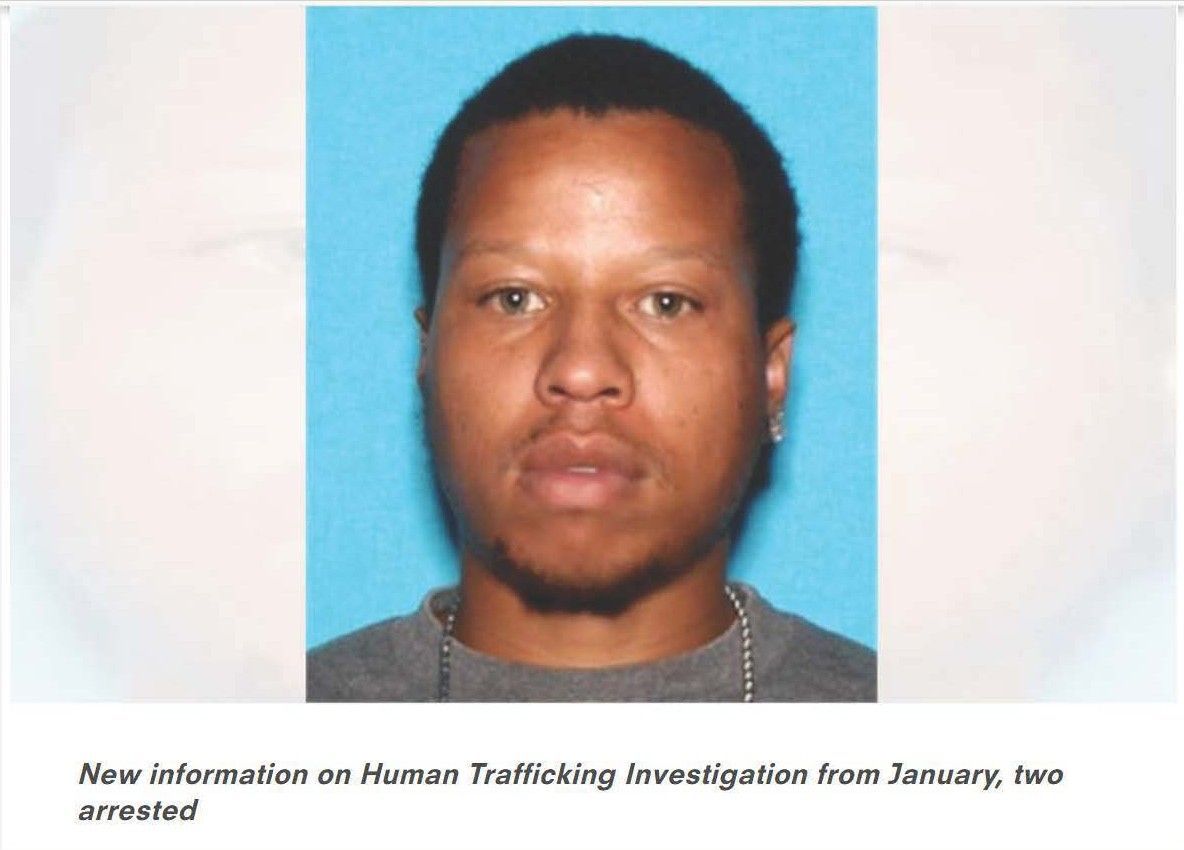
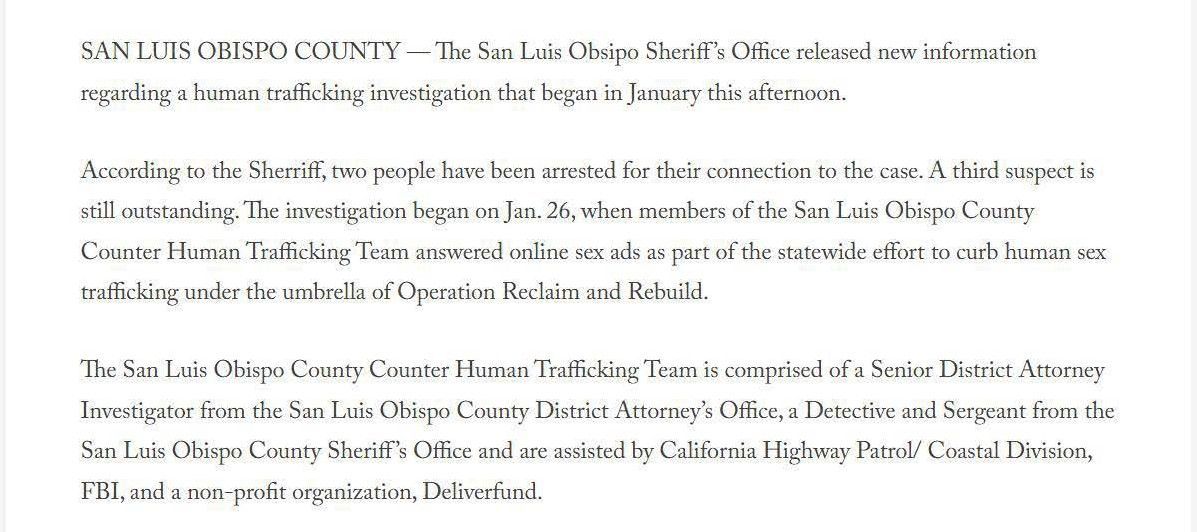
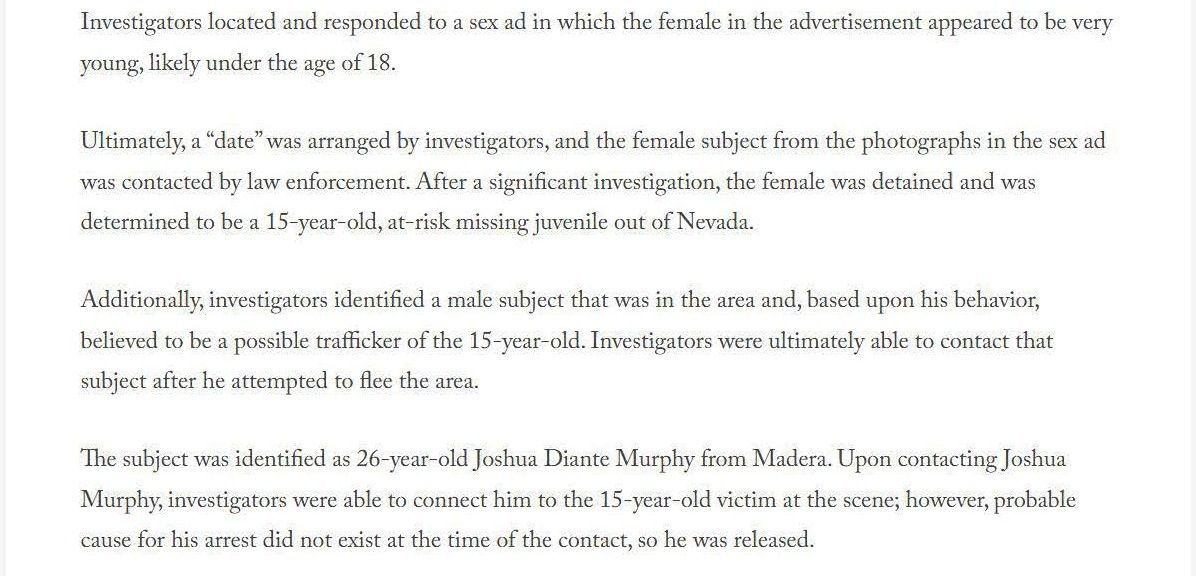
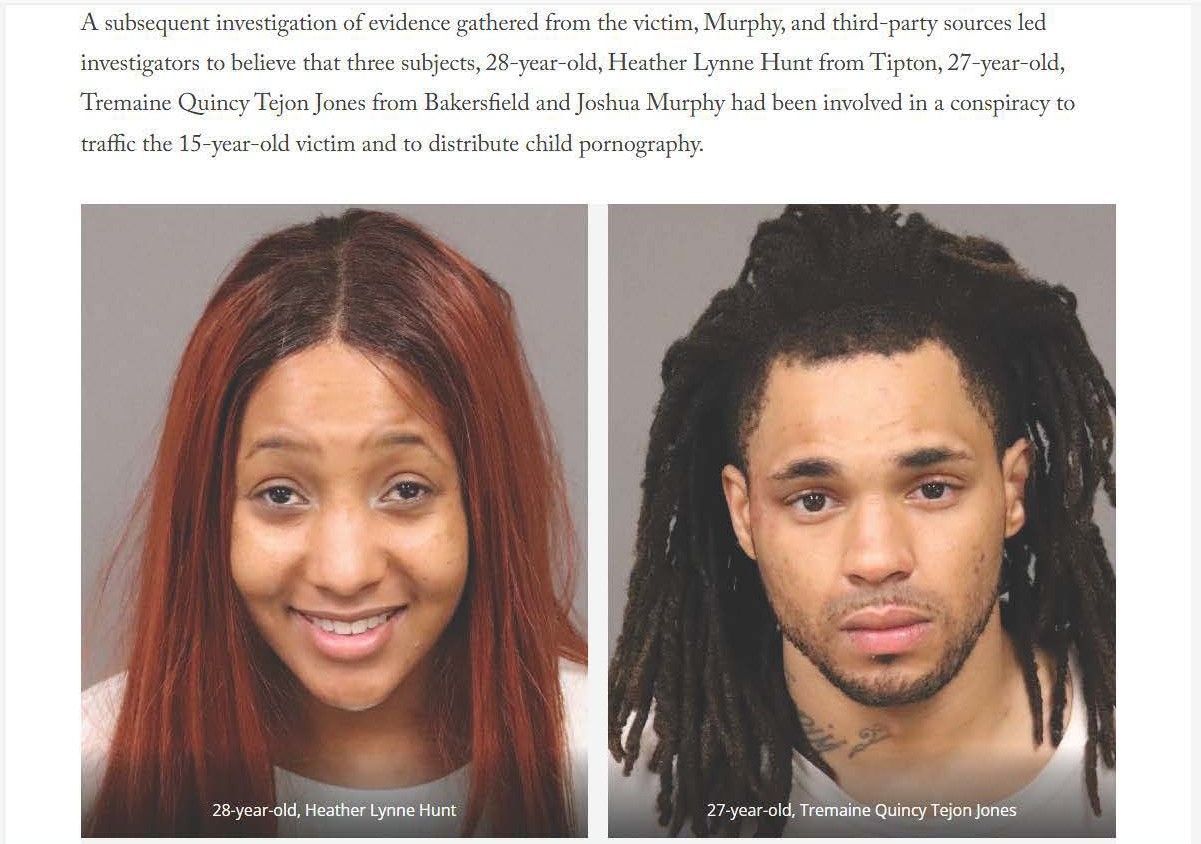
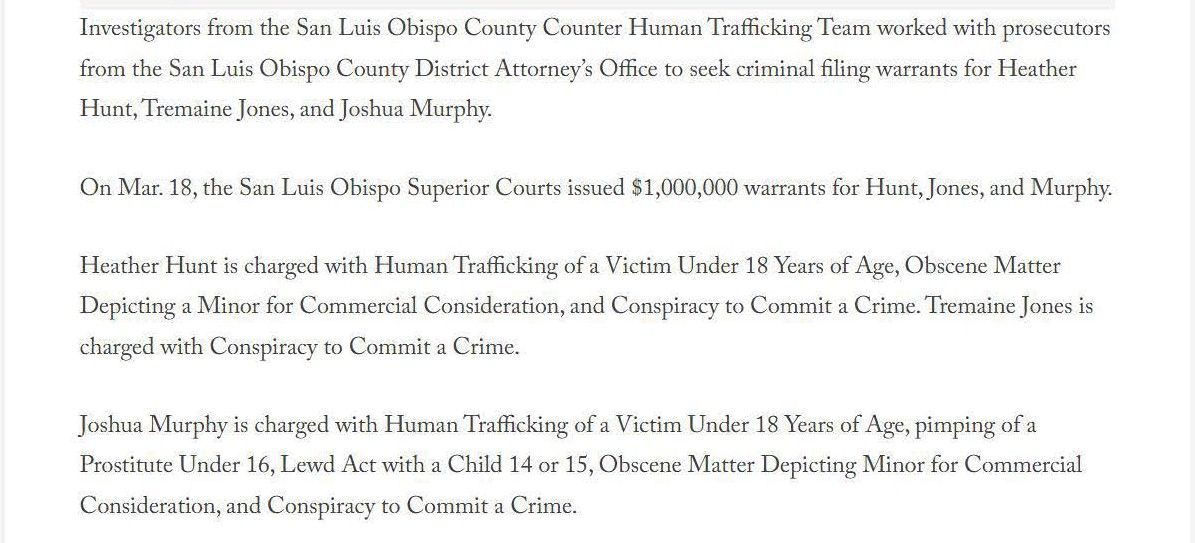
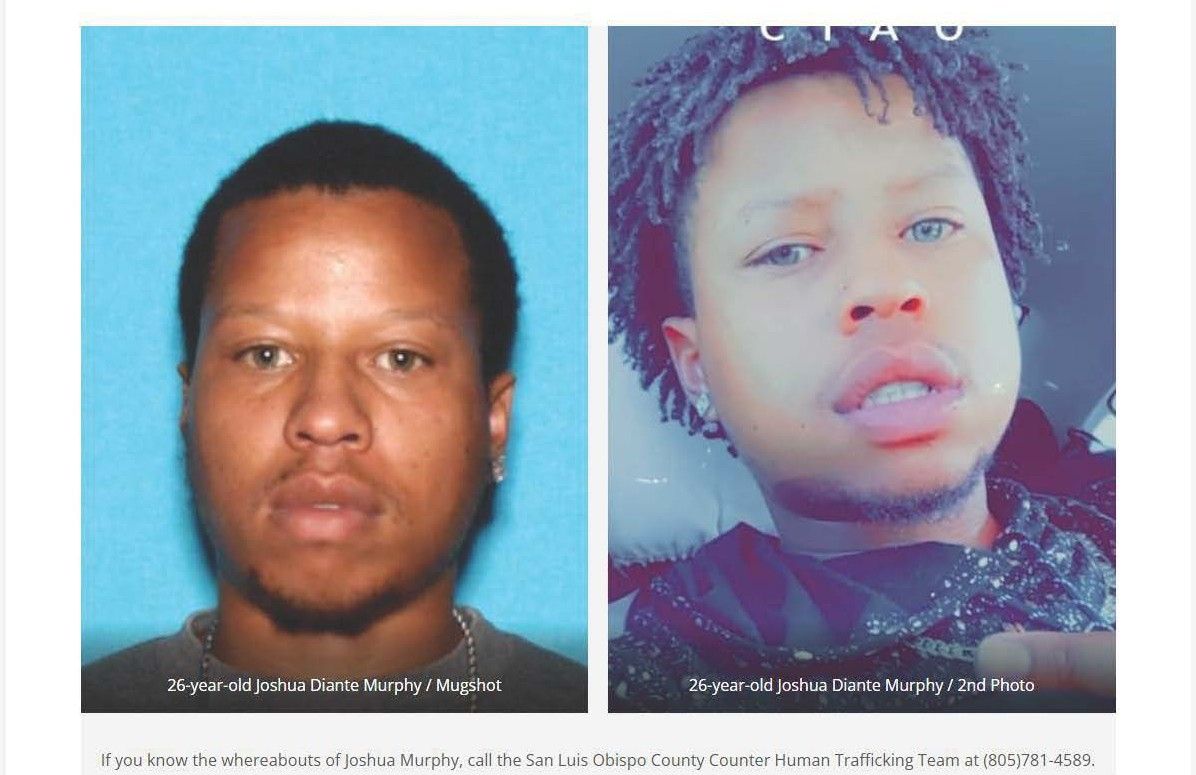
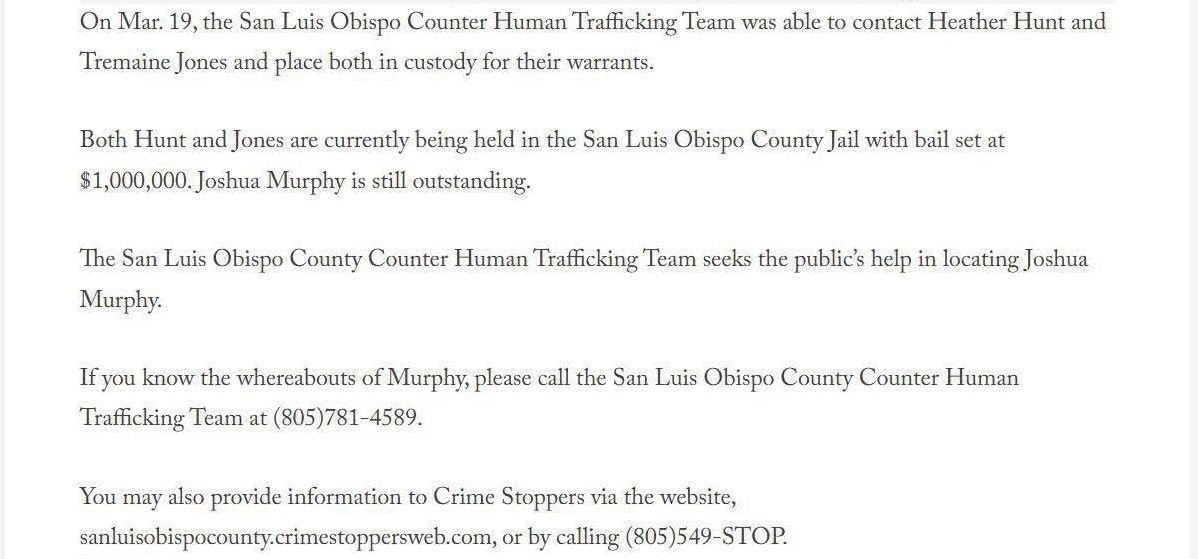
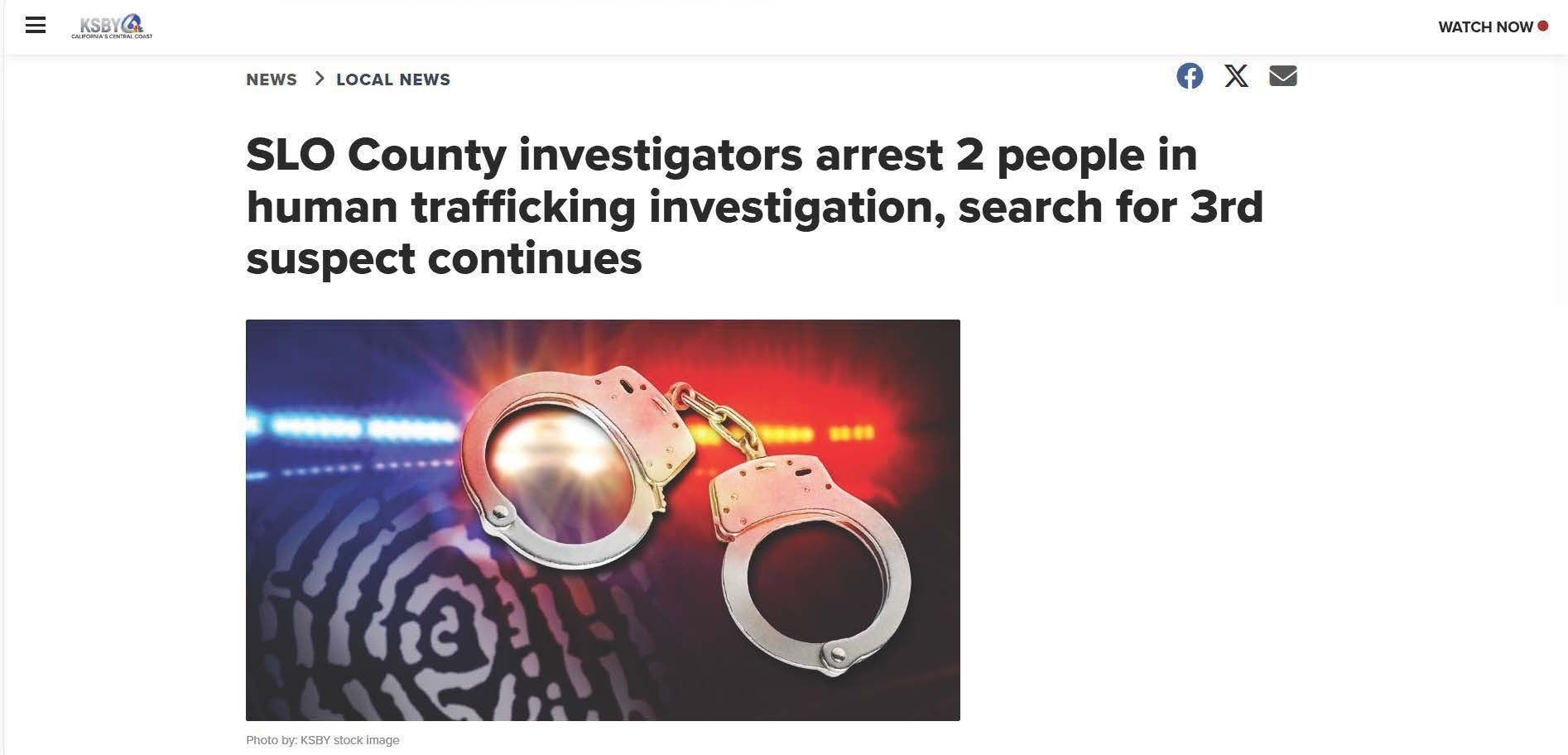



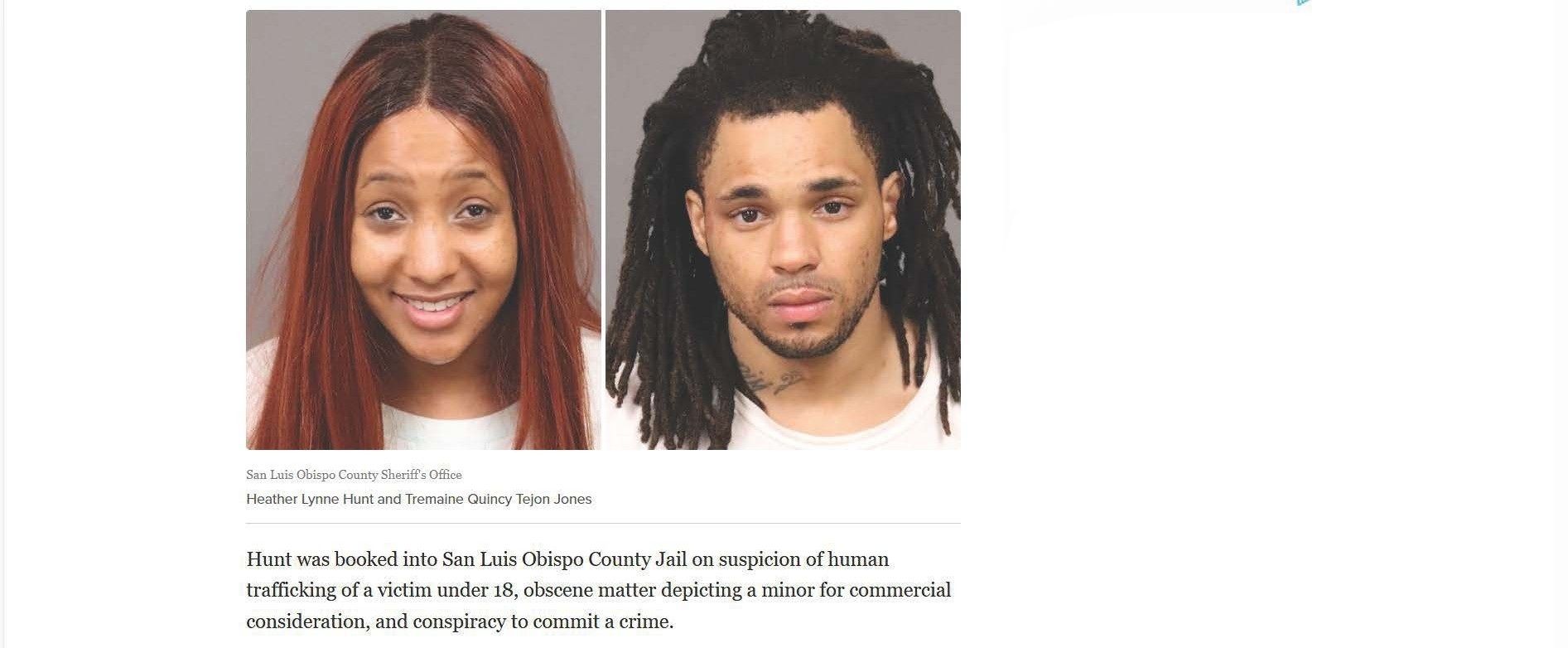


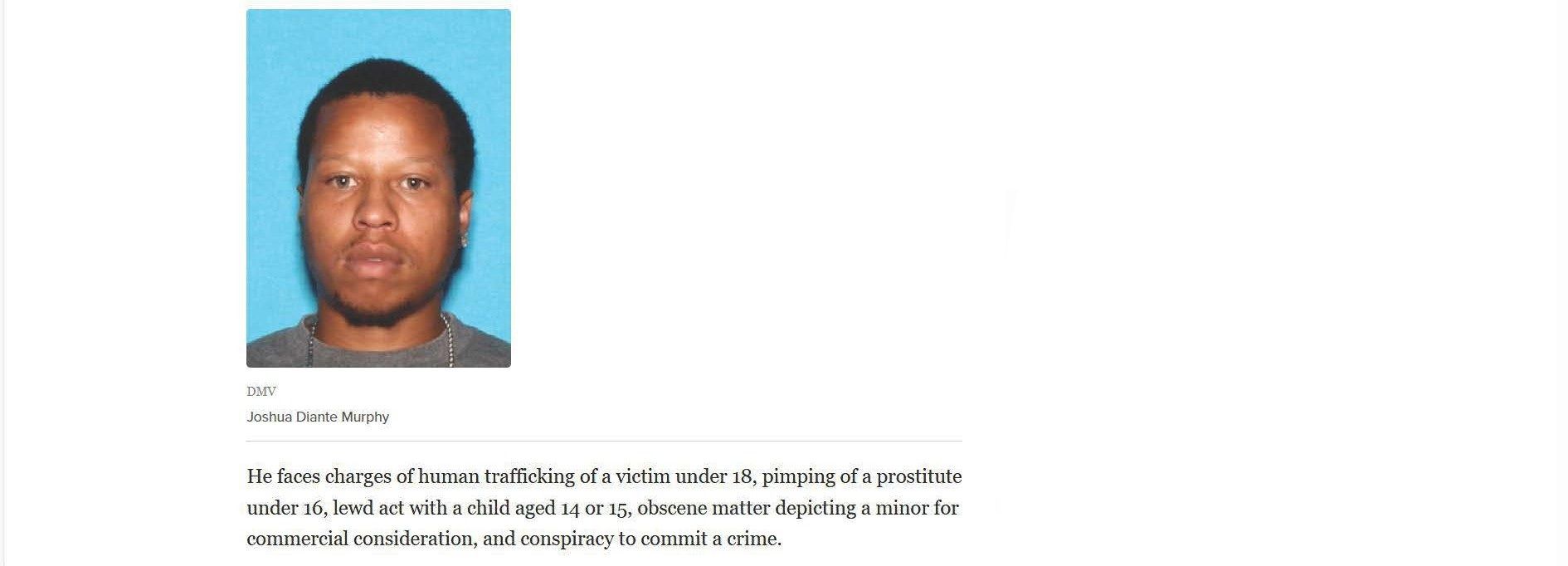


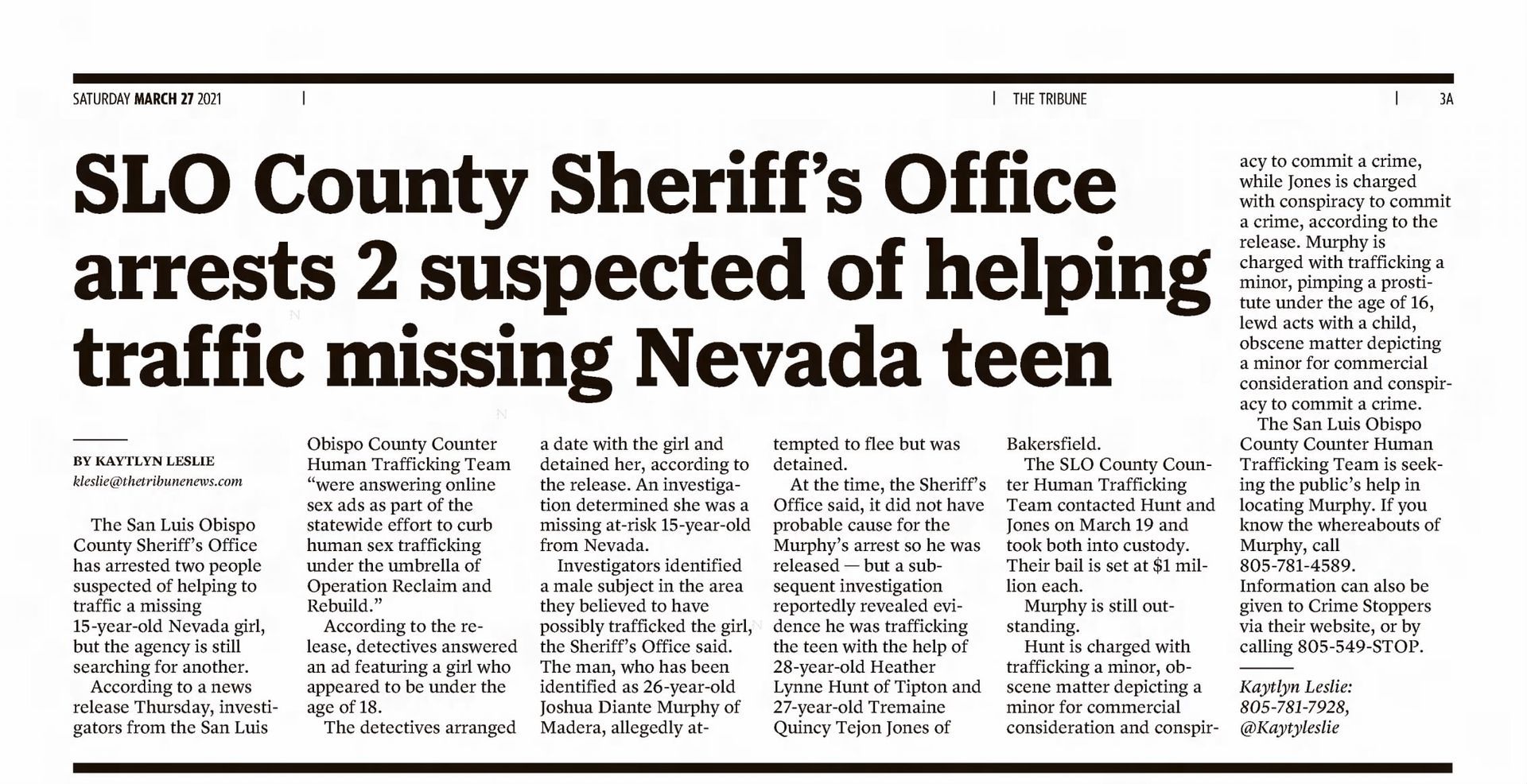
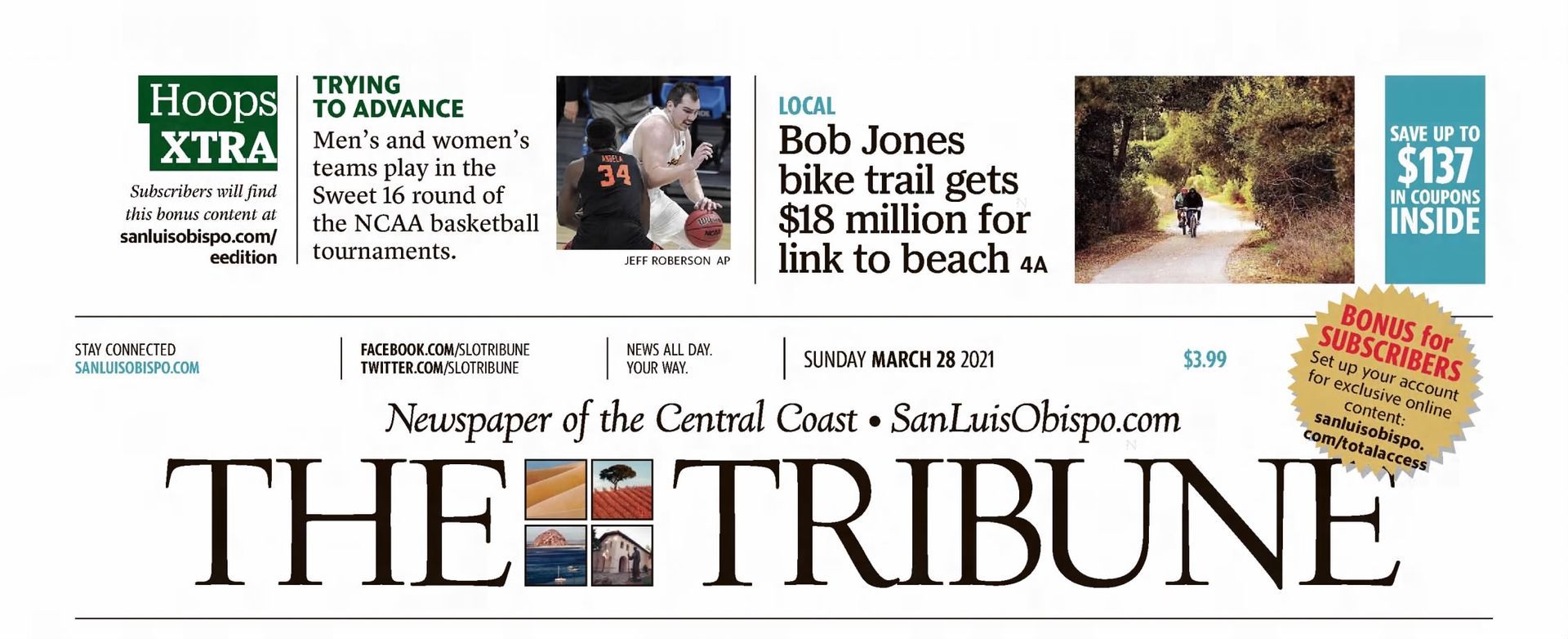

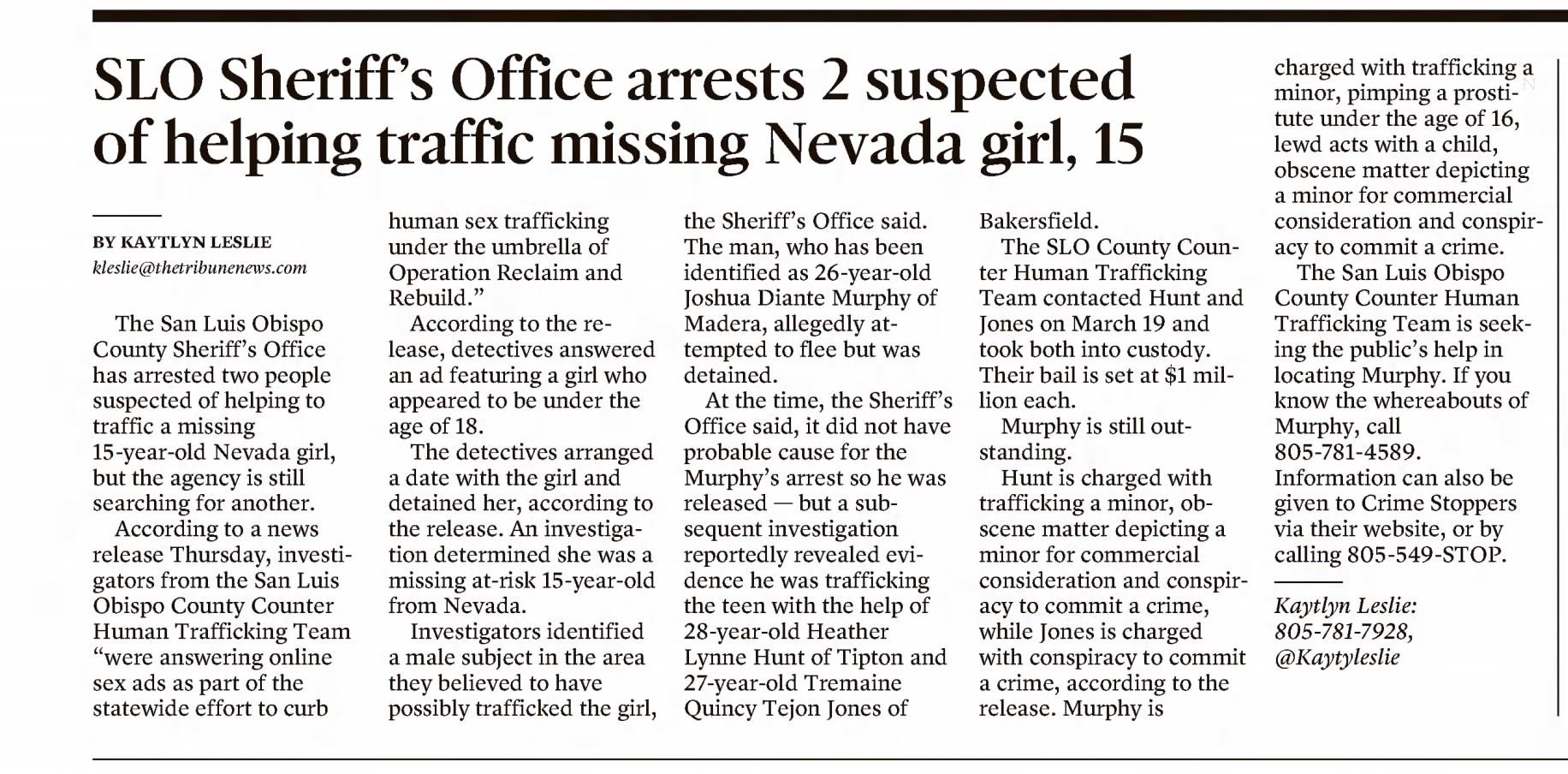
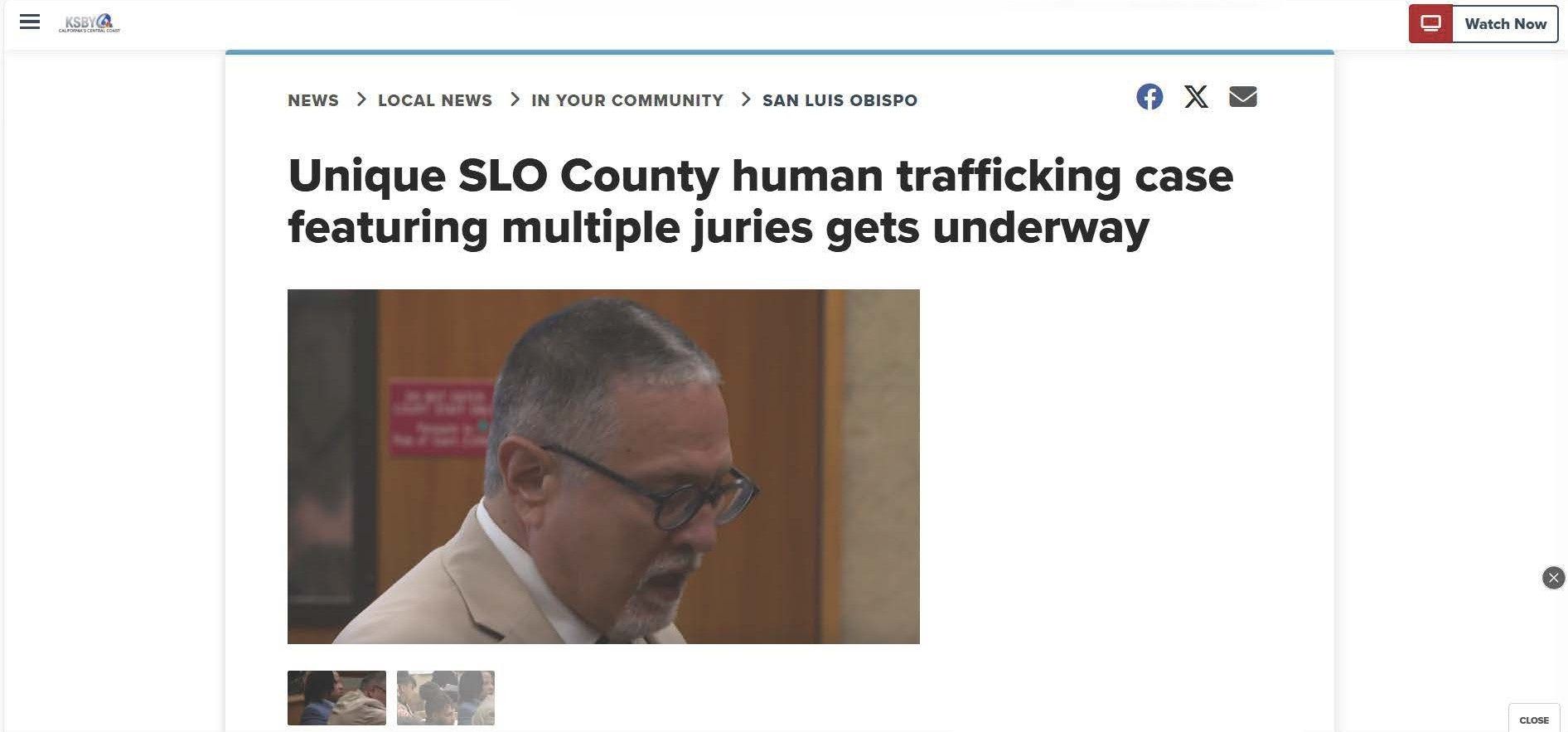



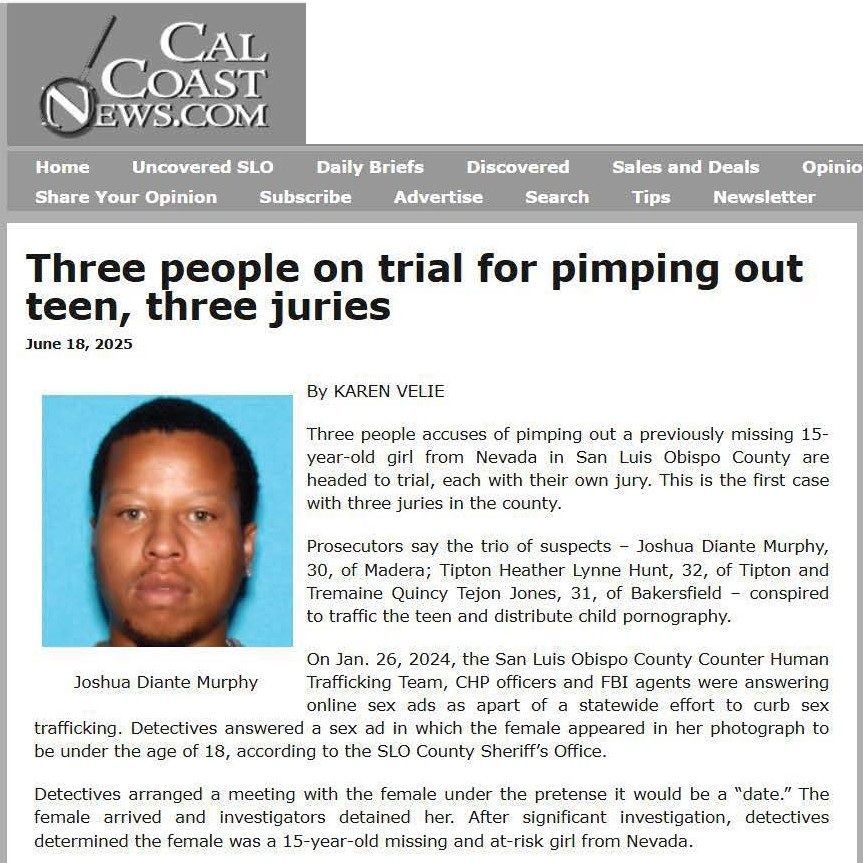
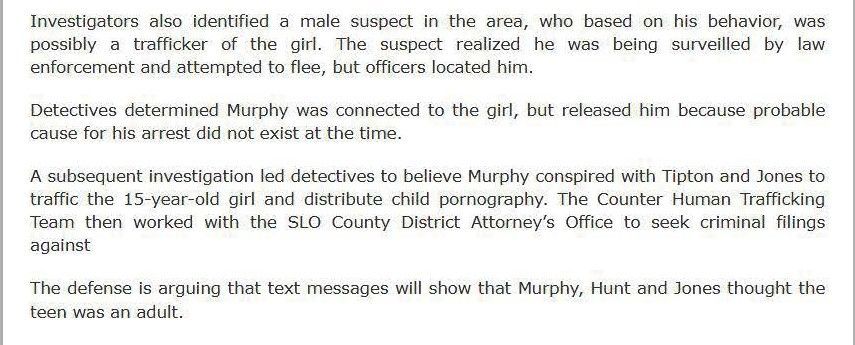

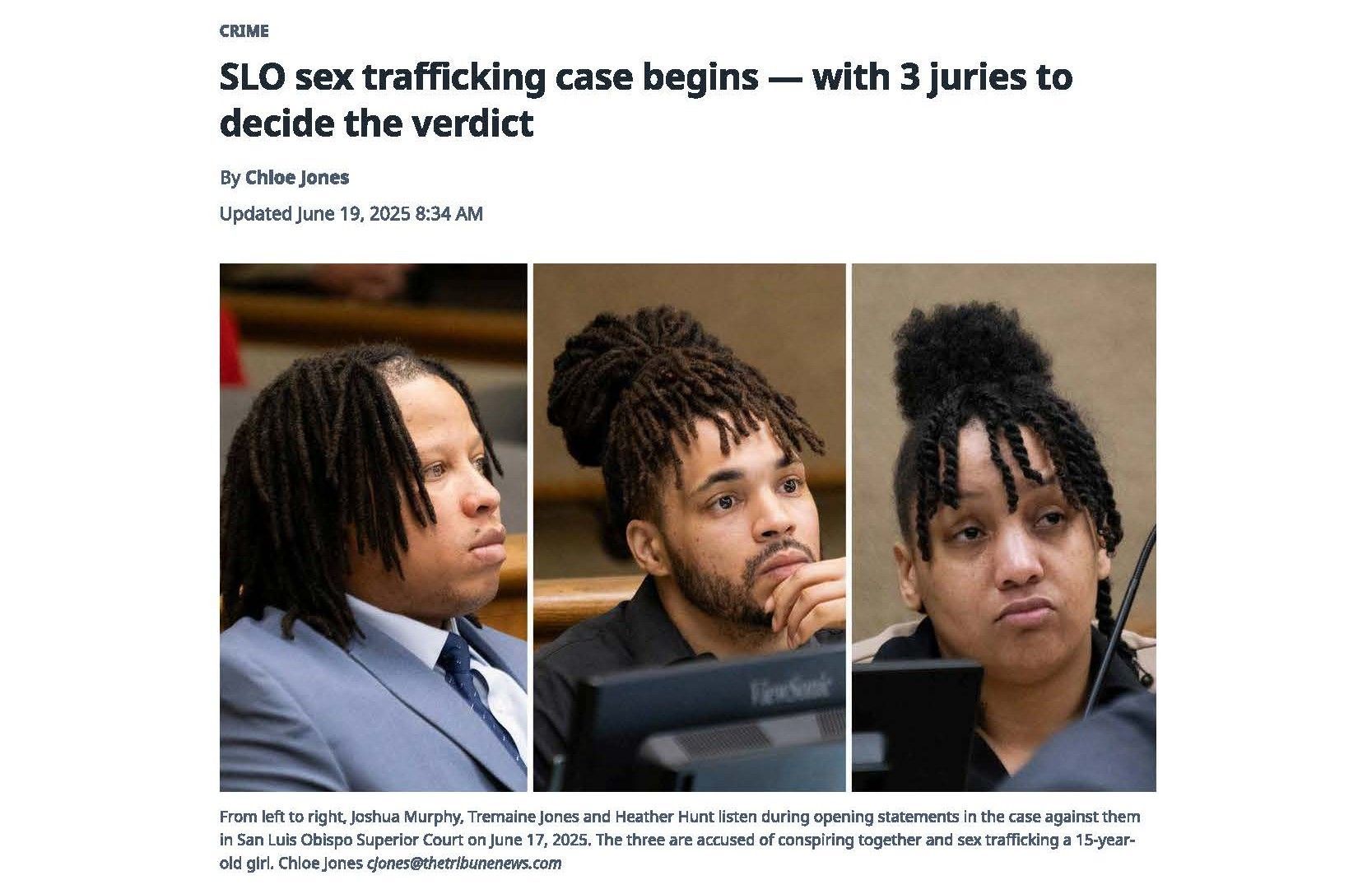


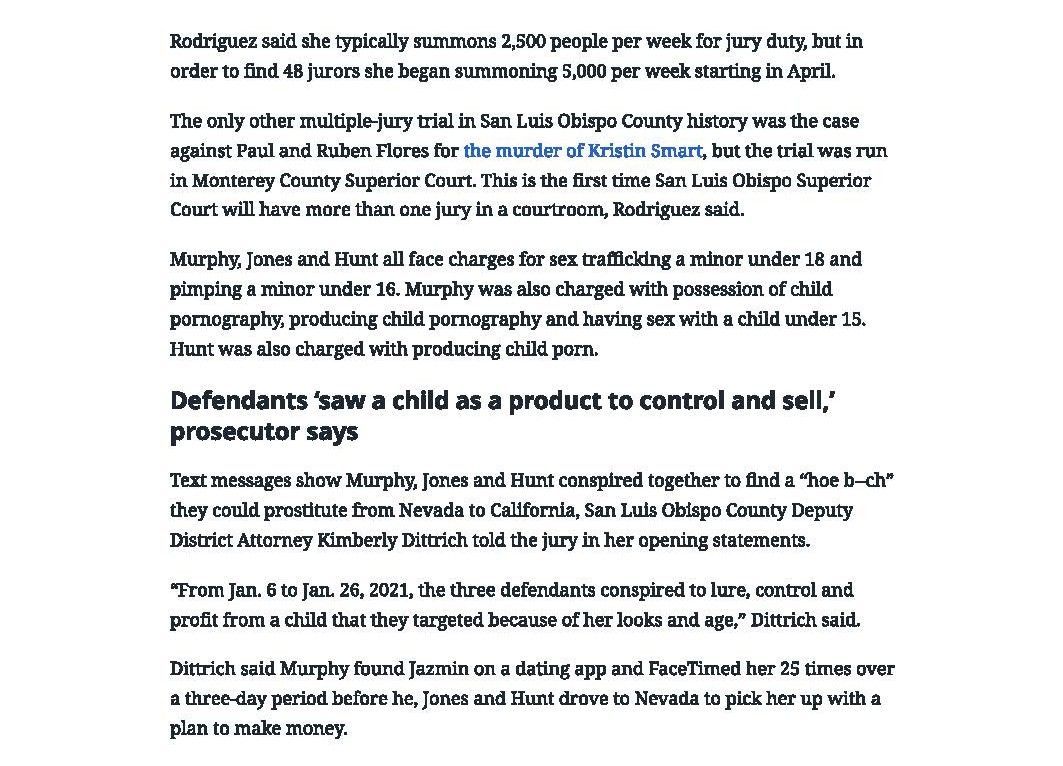

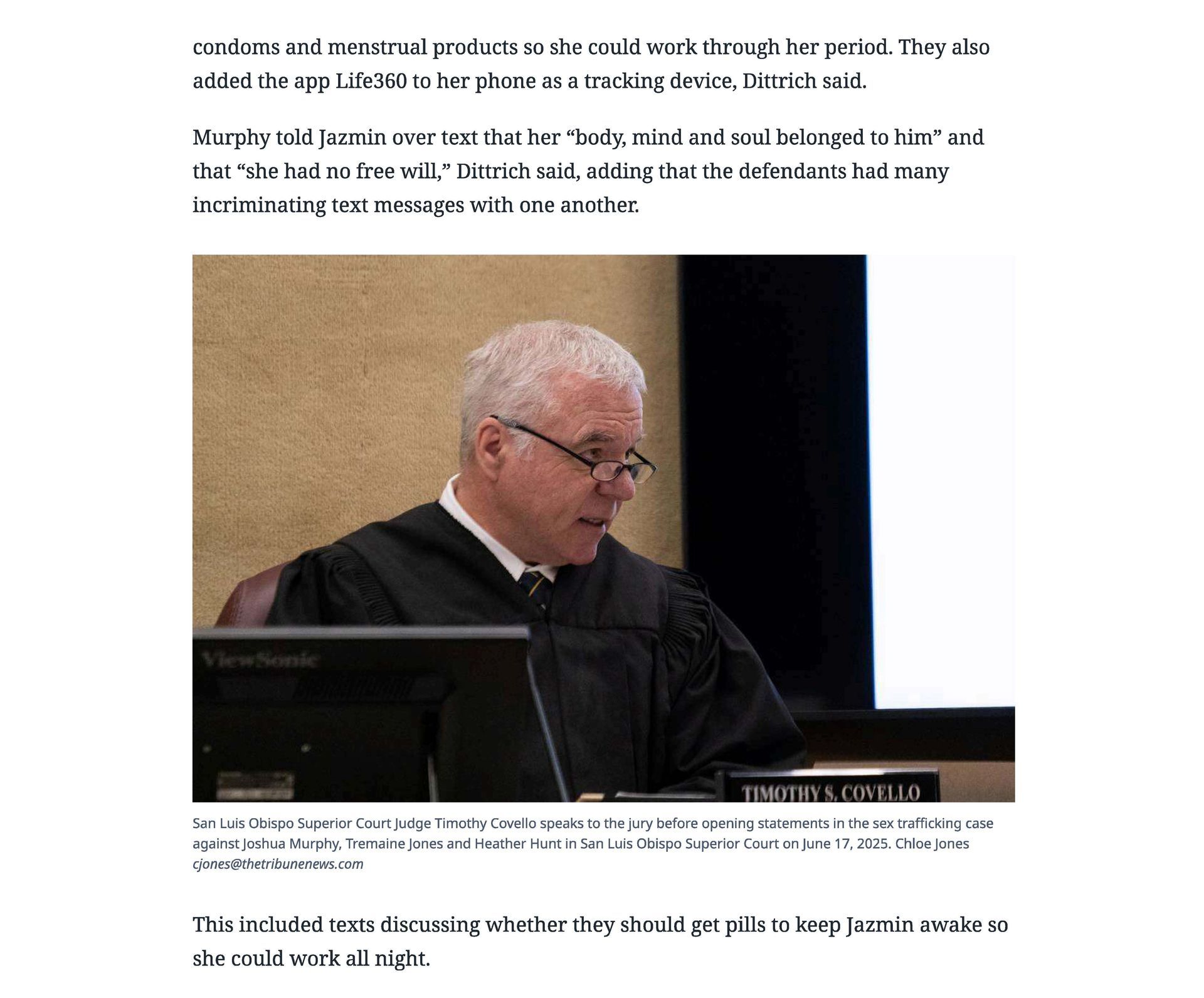

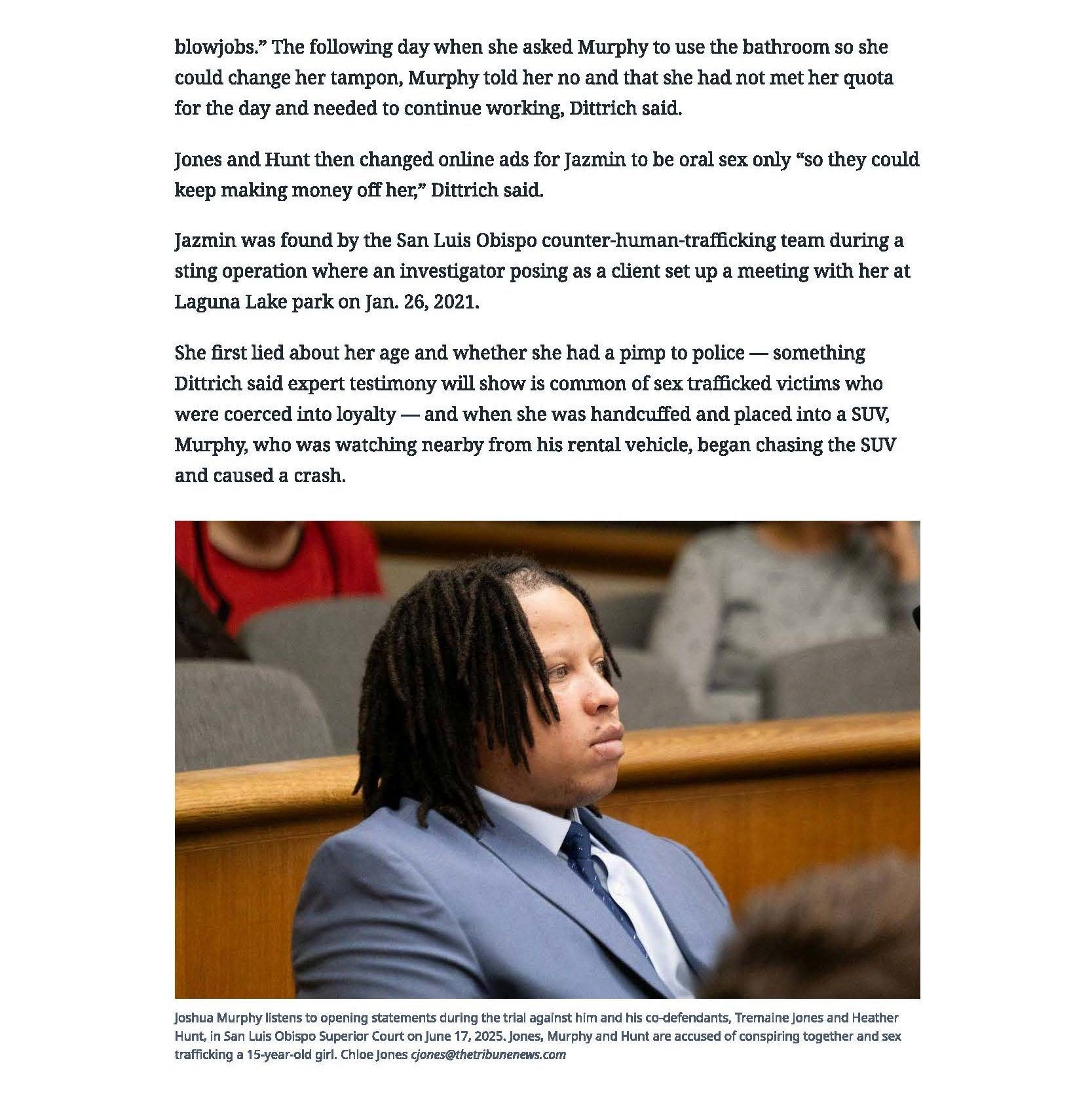
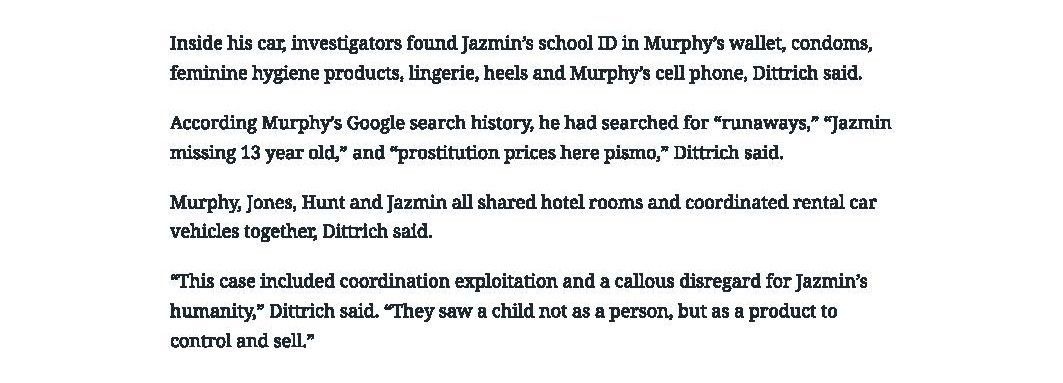
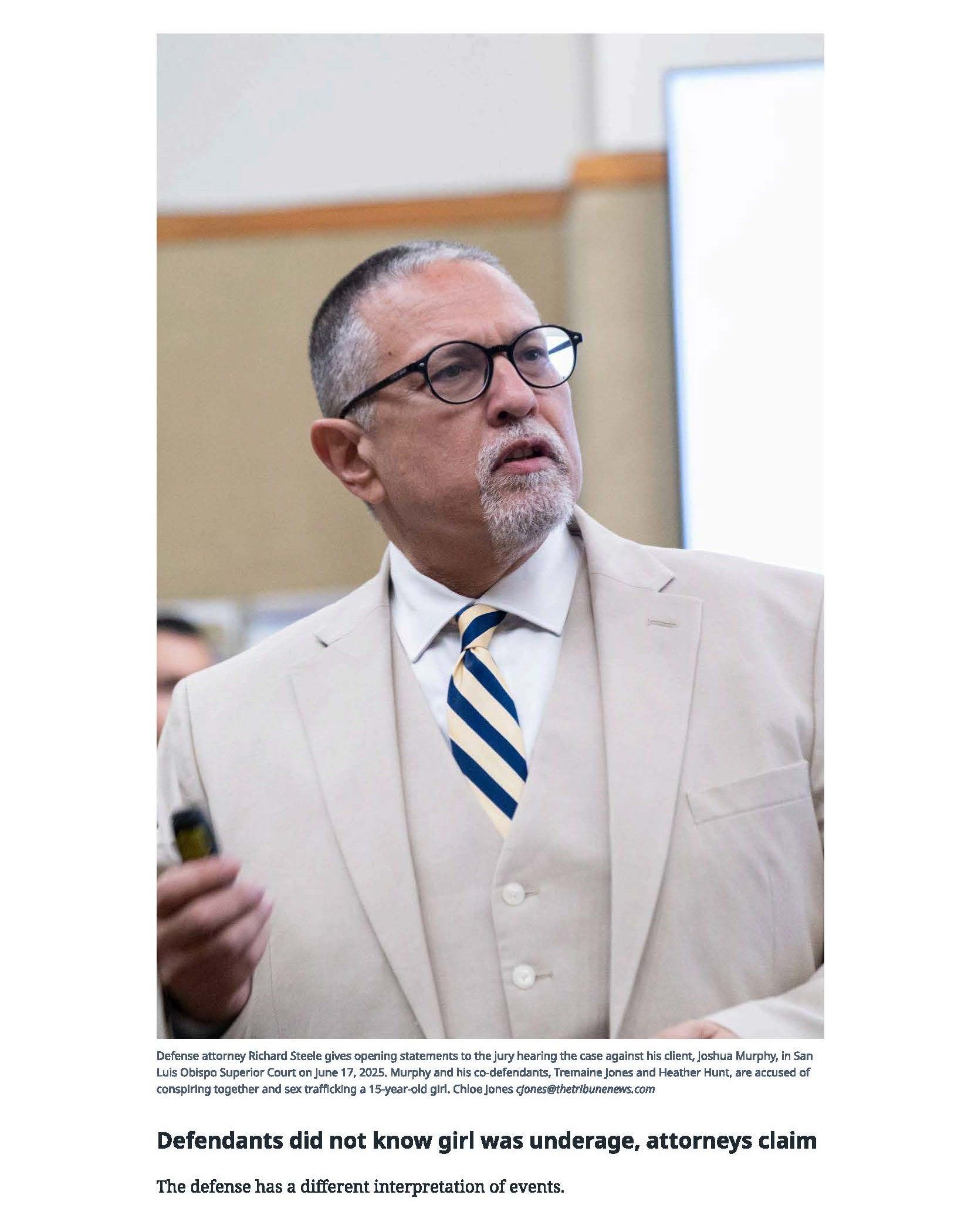
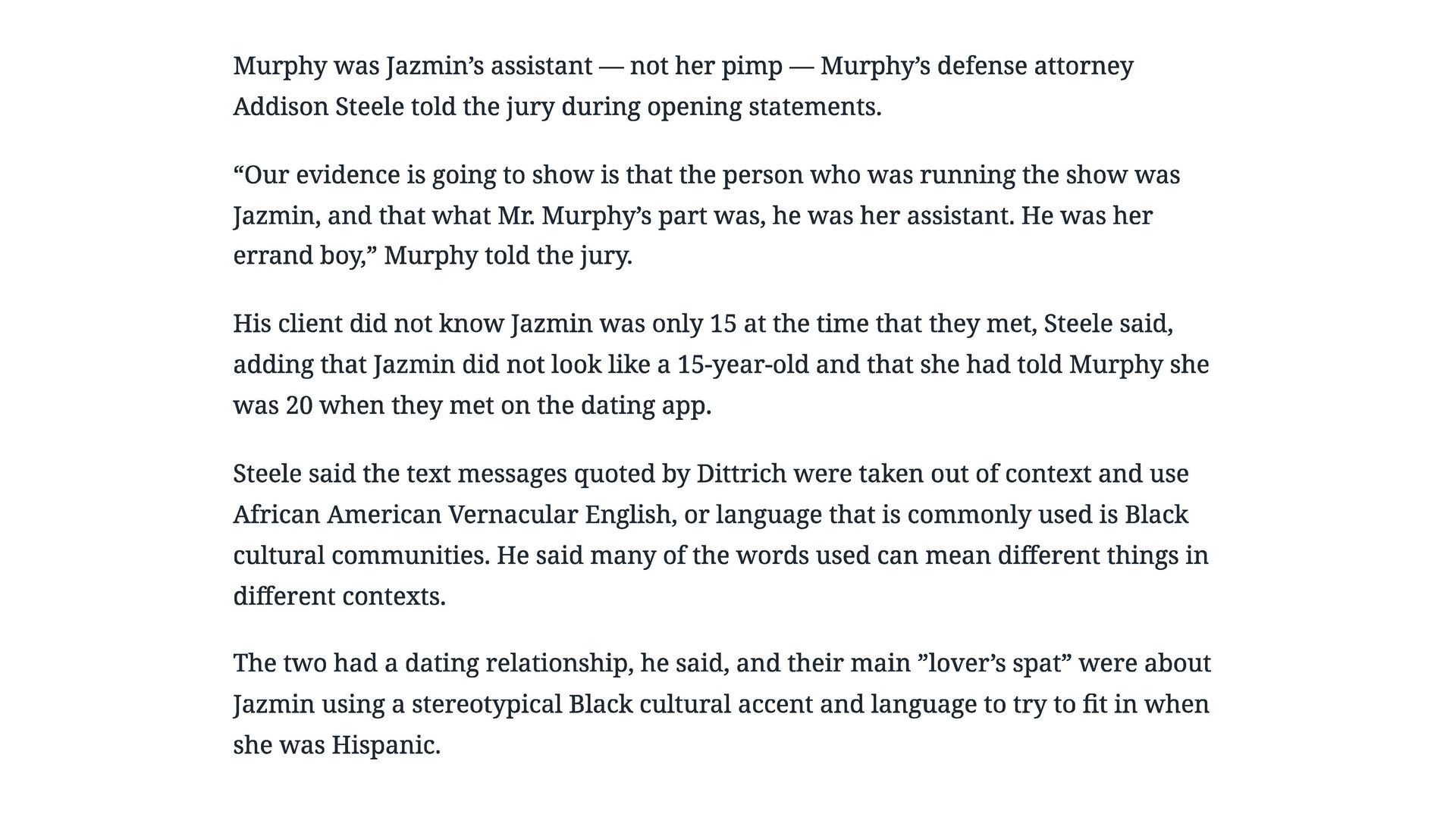
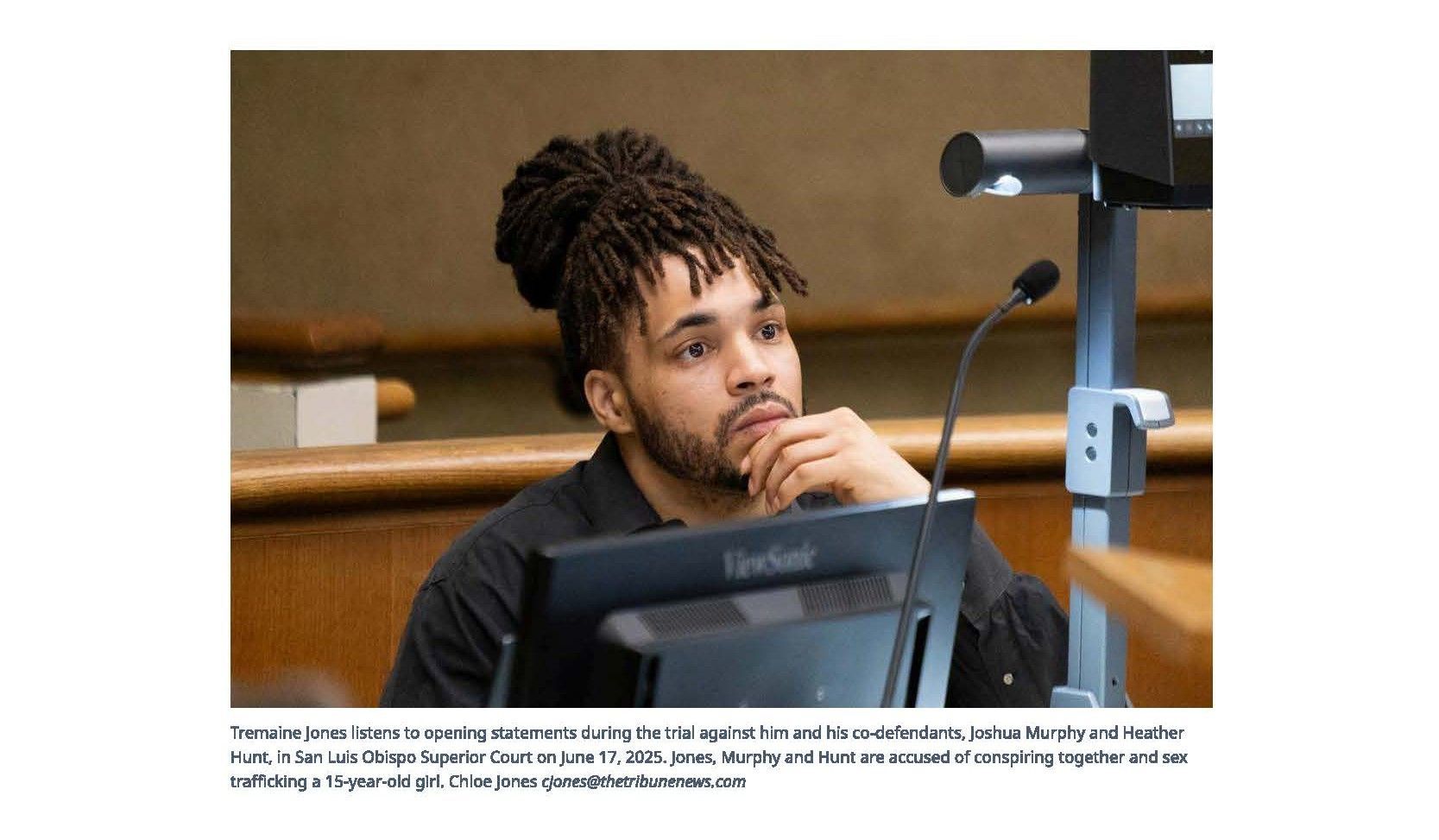

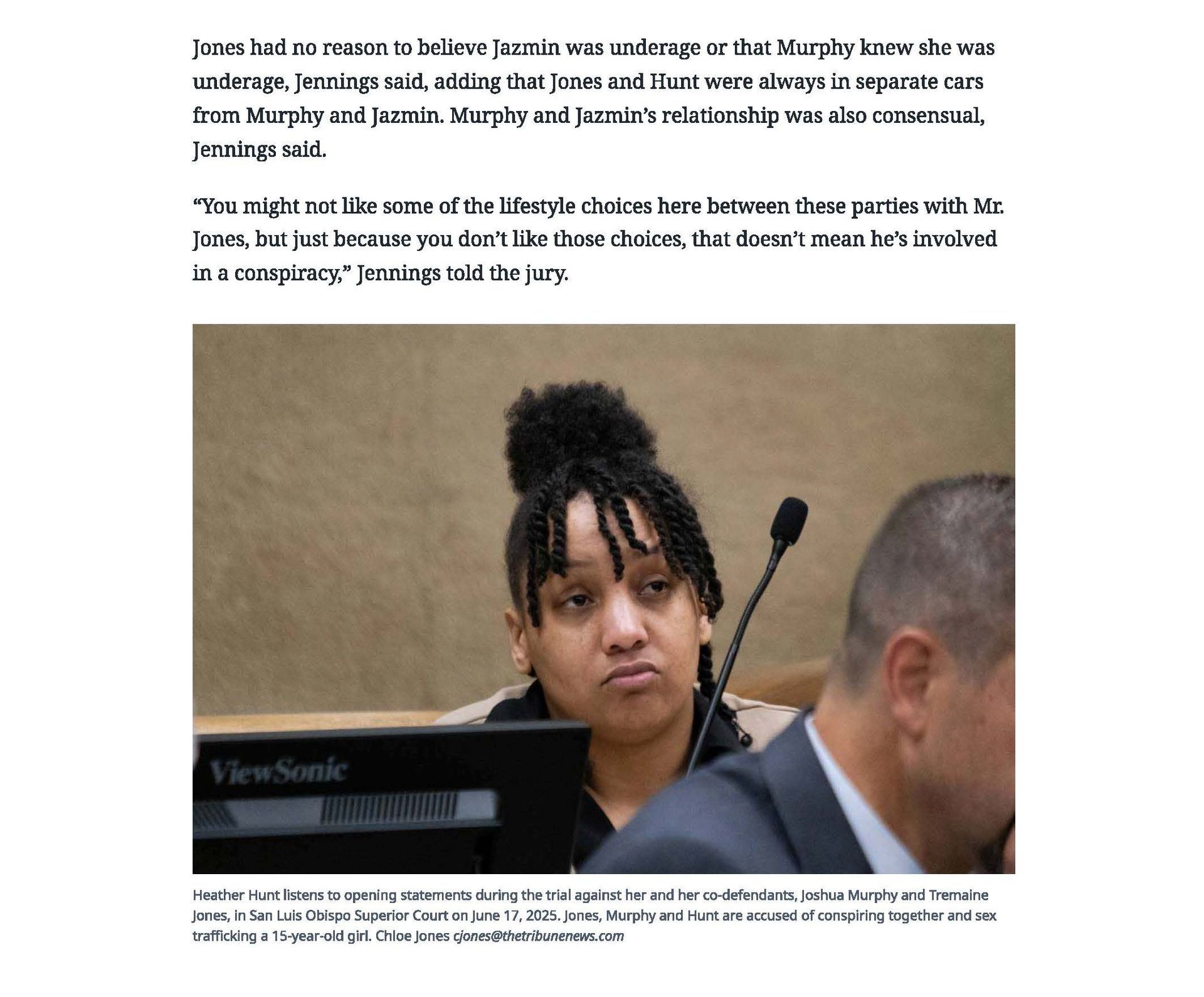

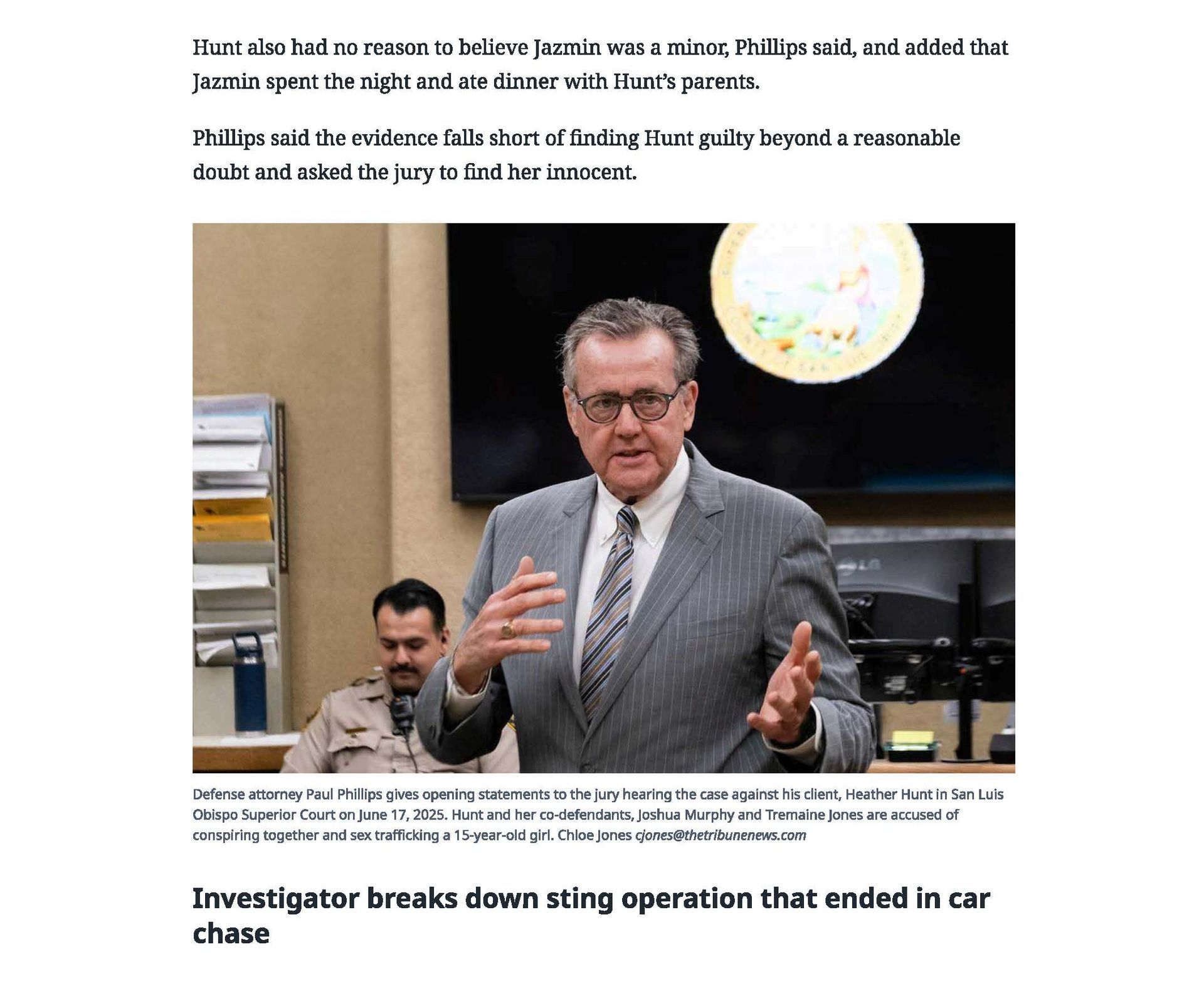

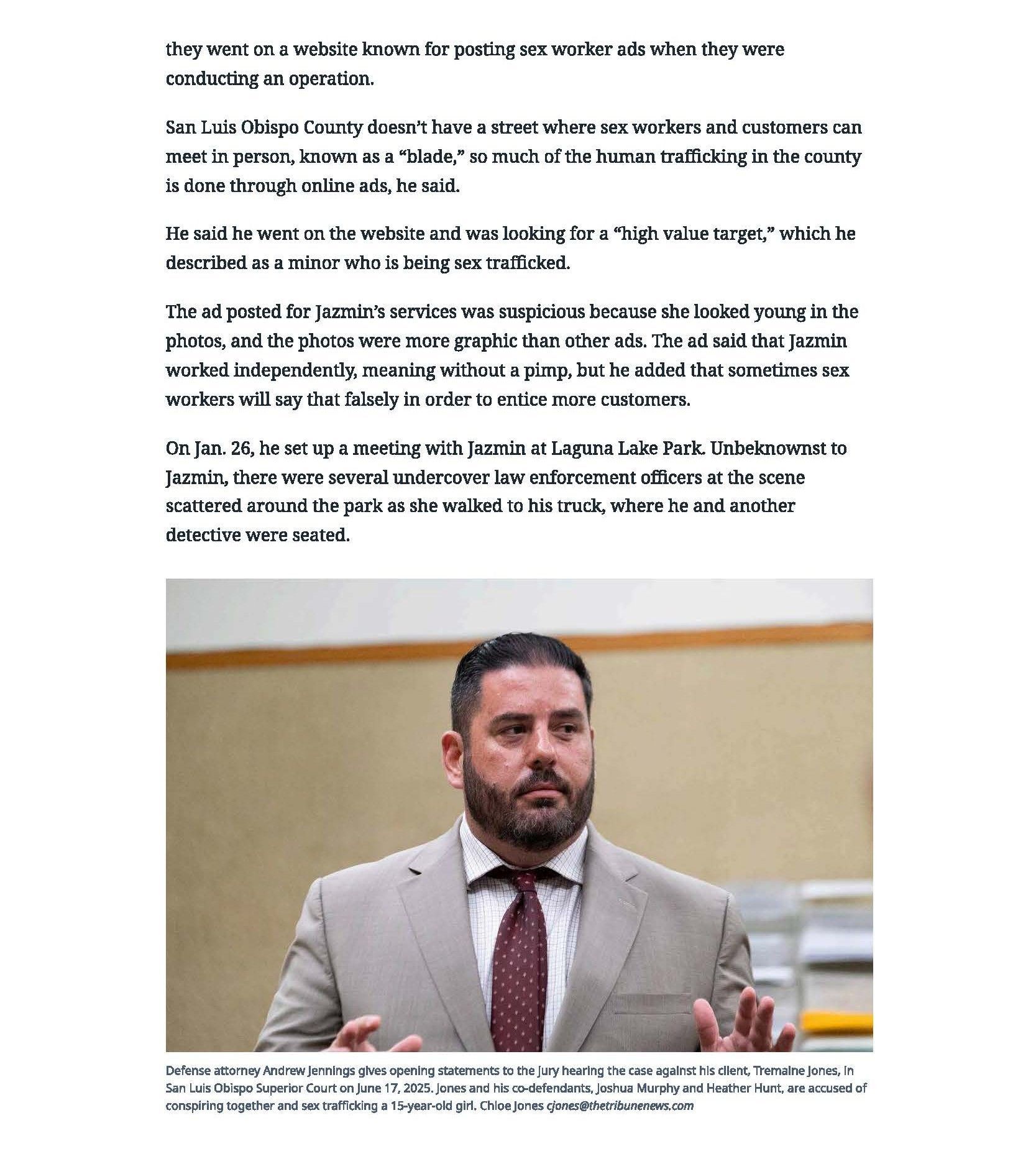
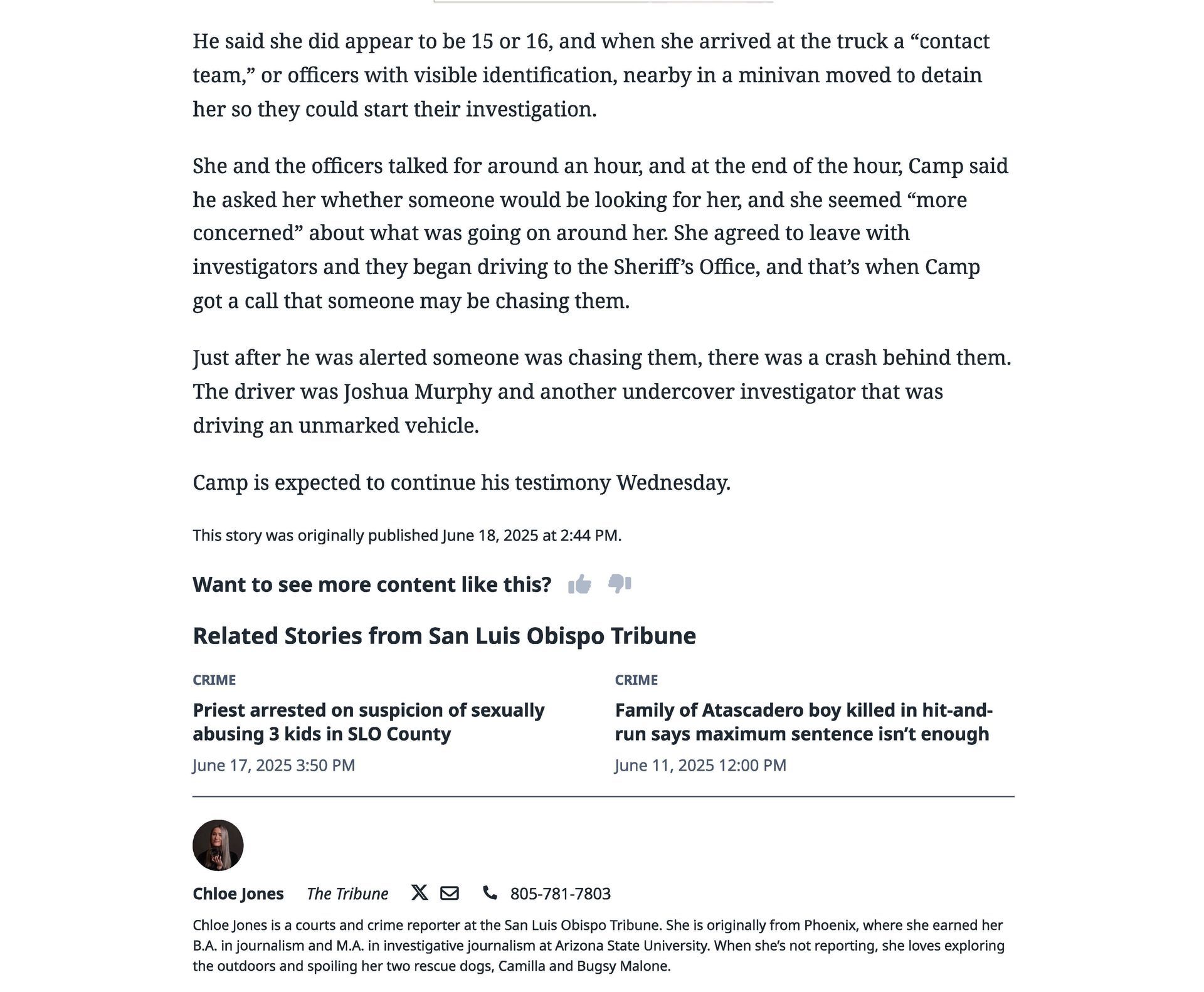

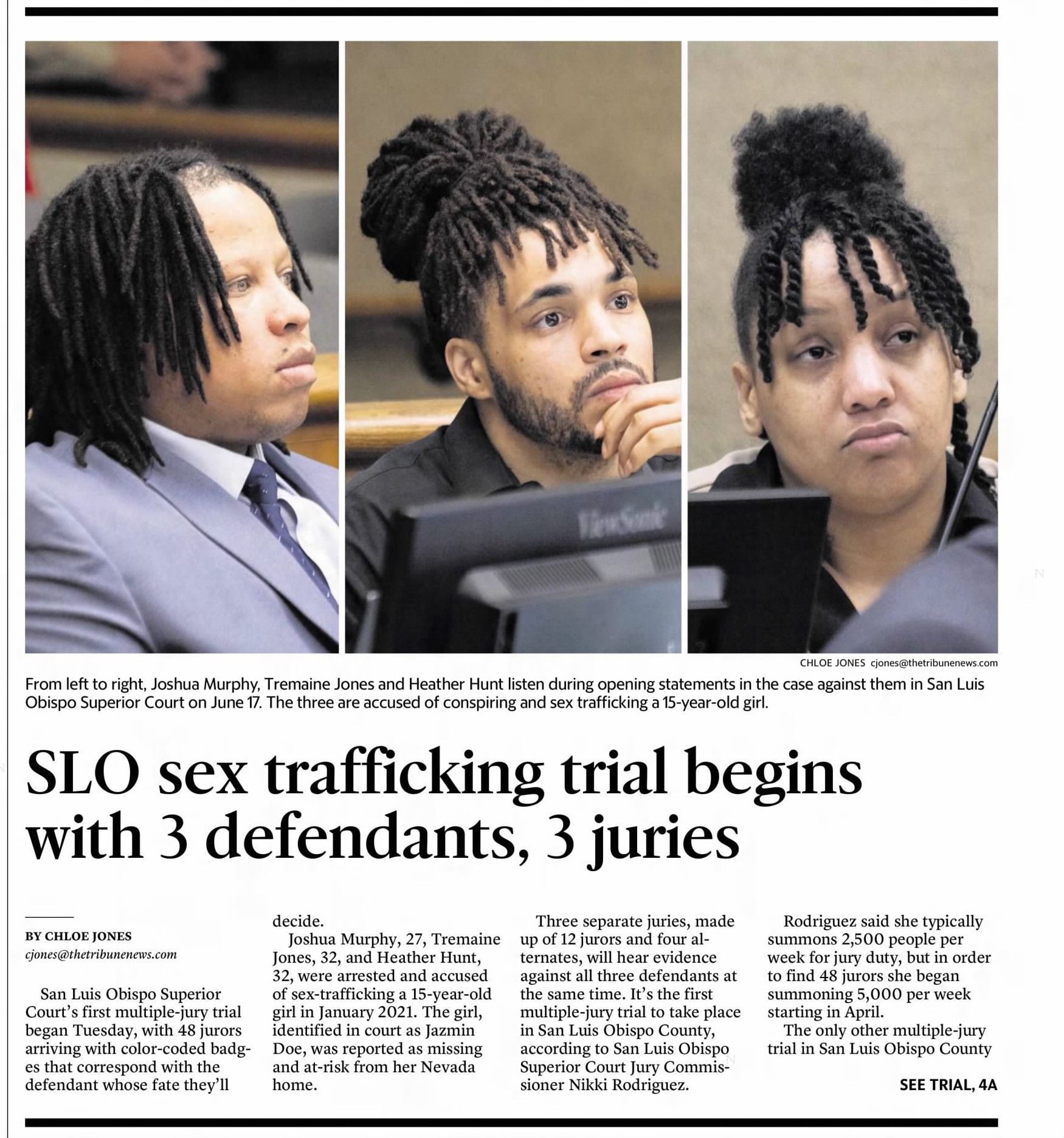
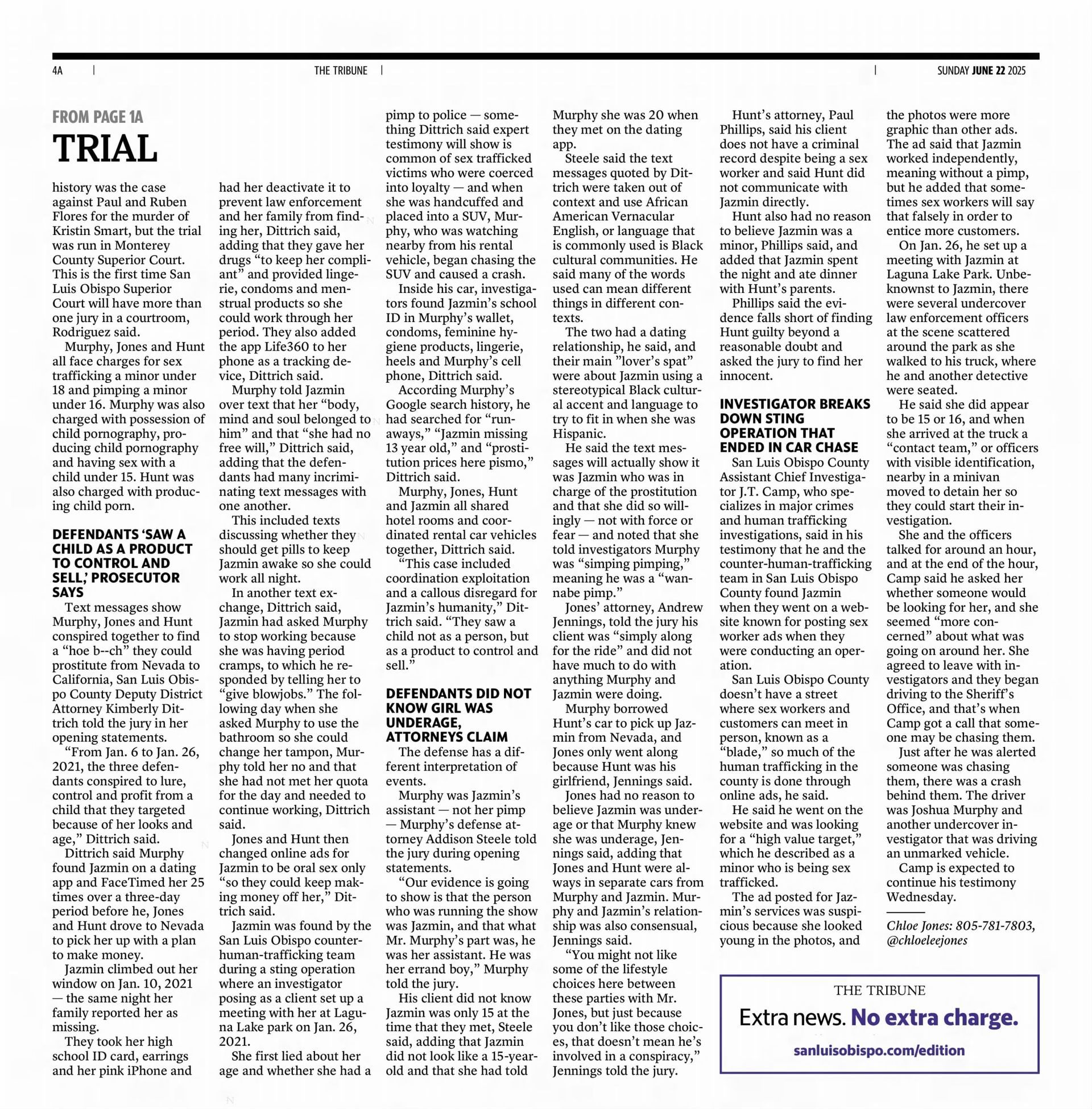

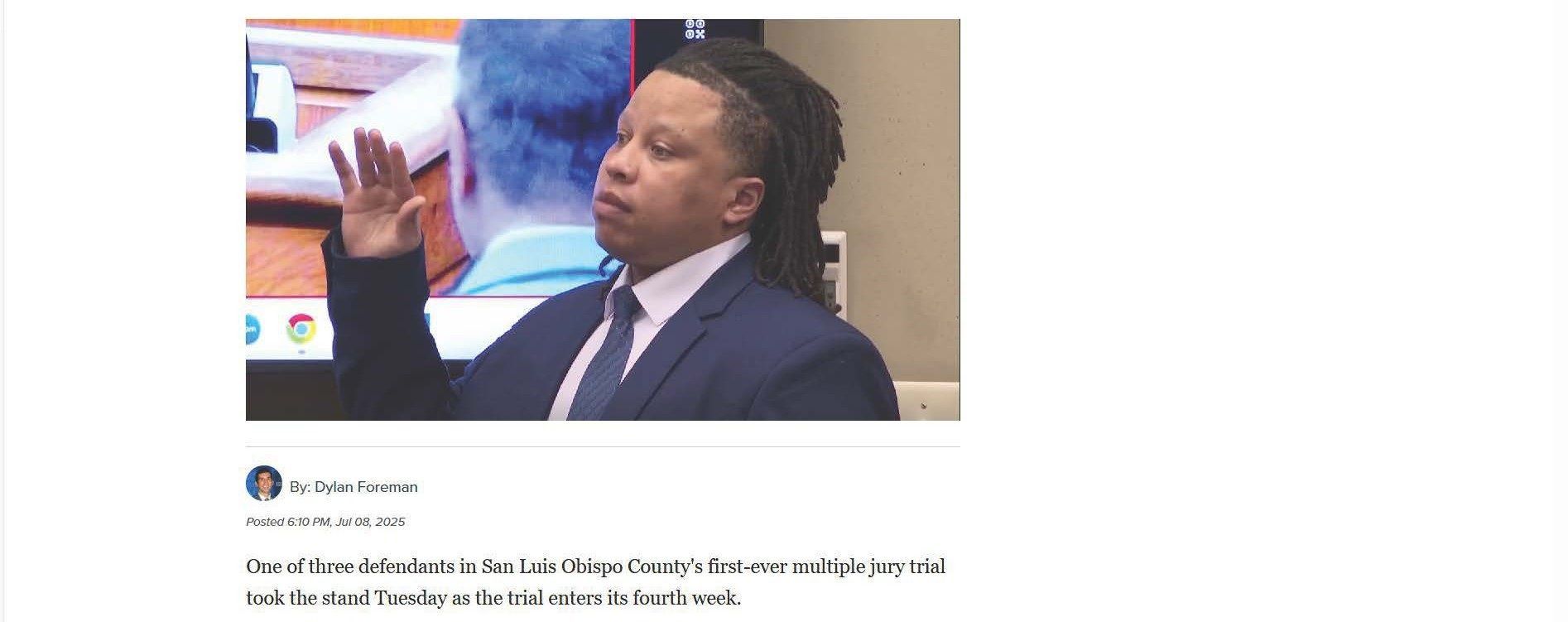





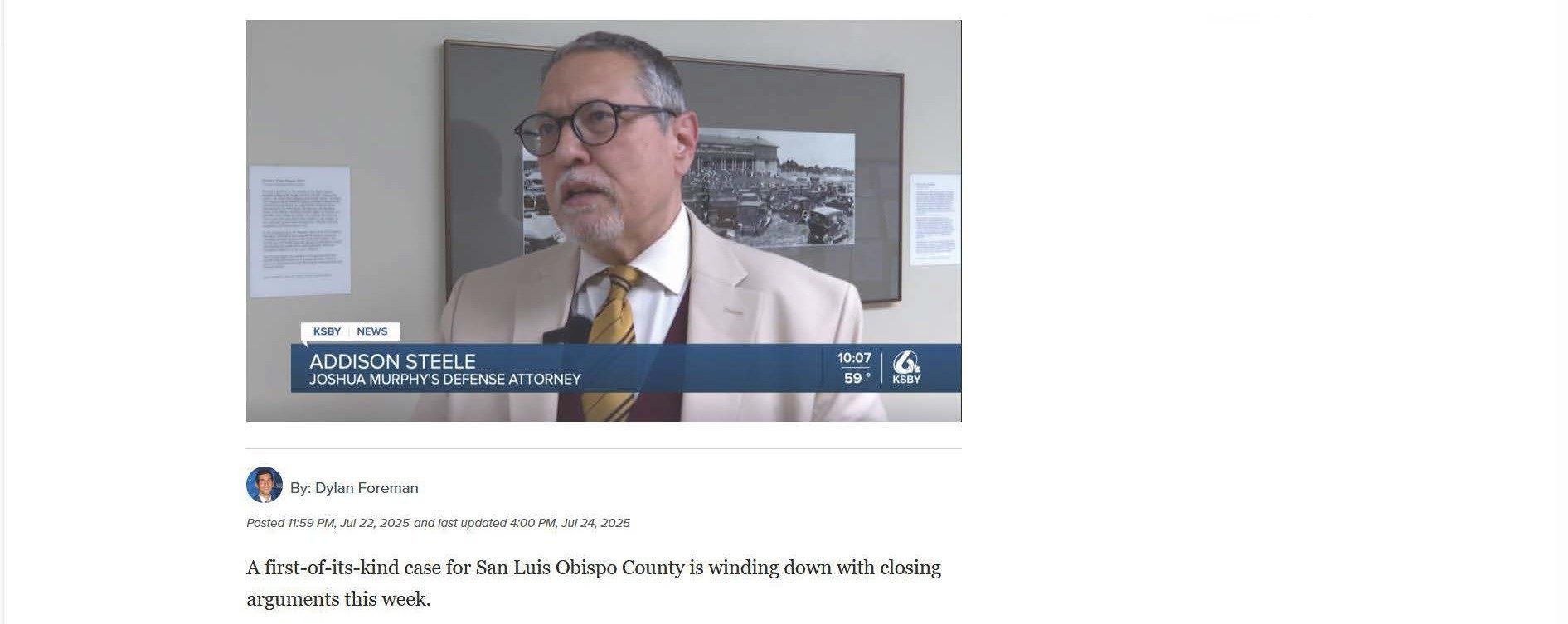

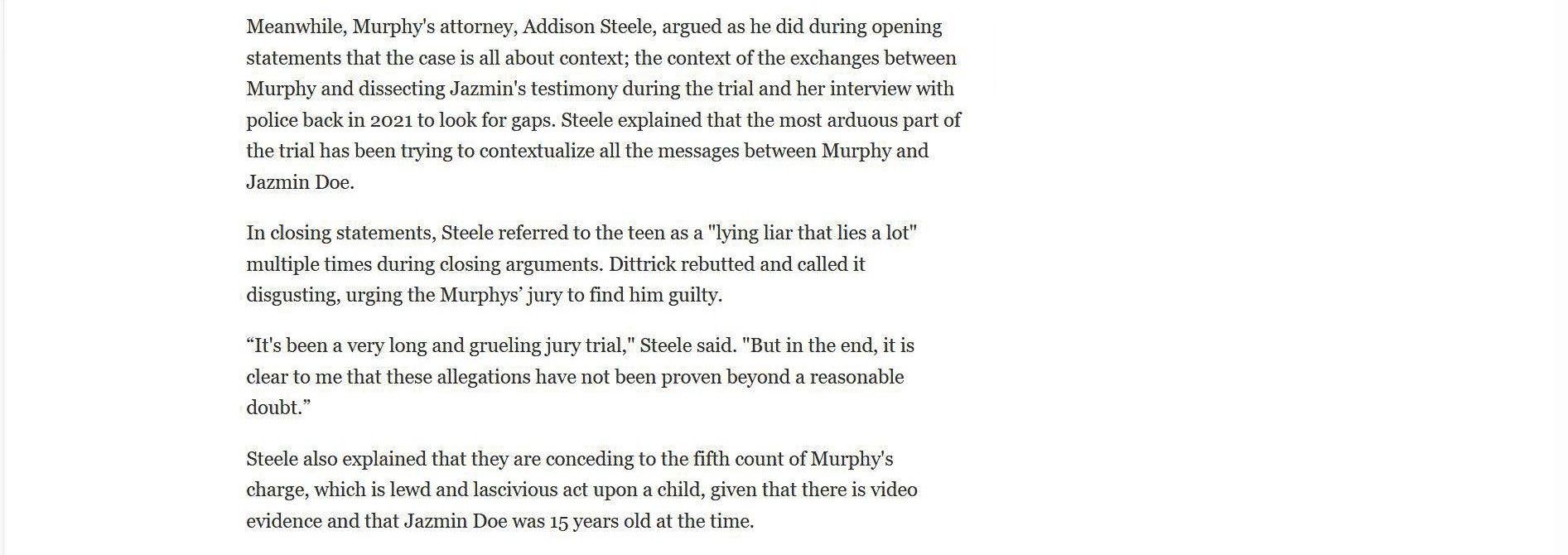


The San Luis Obispo County District Attorney puts out sensationalized press releases after securing convictions. In this case the press release implied that Addison's client and one of his co-defendants had been convicted as charged, when in fact the trial outcome was a tremendous victory for Addison's client and one of his co-defendants. They had both been saved from the possibility of spending the rest of their lives in prison. Addison's client, even if given the maximum sentence for the less serious charges for which he was convicted, is now only subject to a few more years of incarceration, which is of course a far cry from the possibility of spending the rest of his life in prison. A legal intern at Steele & Voss created this more truthful announcement.
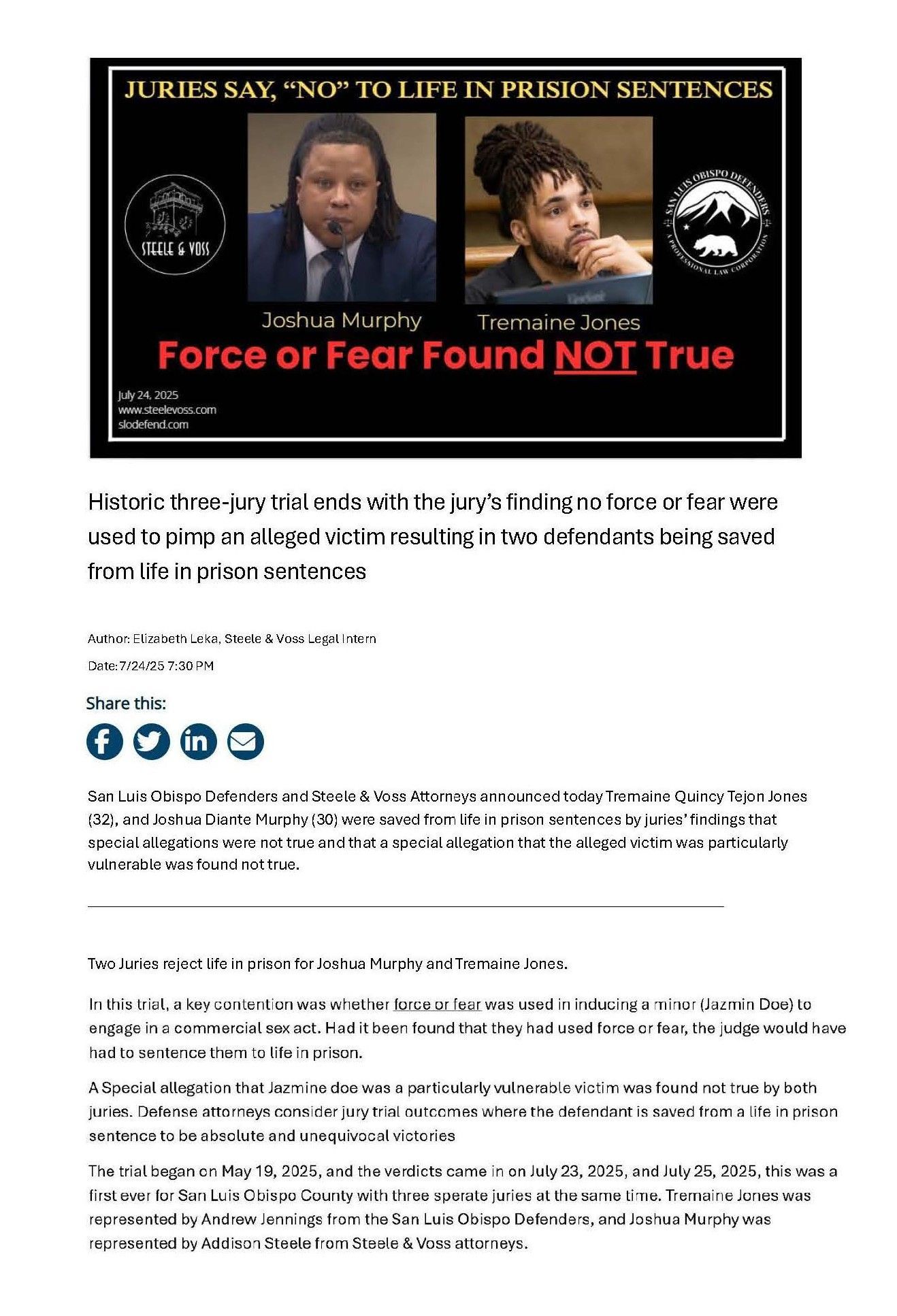
July 24, 2025. This was a long hard fought human trafficking jury trial that Addison won. Any time when the client is facing a life in prison sentence and is saved from a life in prison, that is an overwhelming victory. This was a three co-defendants, three juries trial that started on May 19, 2025 and ended on July 24, 2025 with a verdict that saved Josh from a life sentence. The accusation was that Josh and his co-defendants went to Nevada to get a prostitute to transport to California in order to sex traffic her around the state. In reality, as came out in court during the trial, the "victim" was an experienced prostitute that Josh met on a dating site. Josh and his co-defendants picked up the prostitute because she wanted to travel around with them. As they traveled the prostitute, who knew the "game" (the business of prostitution) in California well, would leave the group to work the "blade" (a place where street prostitutes walk to solicit customers) in whichever city they happened to be in. She also placed internet prostitution advertisements. Eventually Josh began helping the prostitute by giving her rides to her customers or staying nearby as "security." The prostitute was caught in a police sting when an undercover detective answered one of her internet prostitution advertisements.
Human trafficking has become the crime of the day for law enforcement. They don't have much interest in catching prostitutes, they want to catch pimps so they can be charged with human trafficking. When the prostitute was caught, what the detectives, including an FBI agent, were most interested in was finding out if she had a pimp and who was that person. Pimping as defined by California law is not what most people believe it is. The law casts a wide net because the definition is essentially if a person gains or is supported in any way by the proceeds of a prostitute's work, that person is a pimp. An example is a person, we'll call him Adam, has a friend that's a prostitute, we'll call her Betty, and Betty in any way uses her prostitution income to benefit Adam, he's a pimp. So if Adam knows that Betty went to work prostituting, and at the end of her work day, Betty says, "Hey let's go get a cup of coffee," and Adam says, "Sure, I'll join you for a coffee." Then when they get to Starbucks, Betty says, "Let me buy today, I had a good night, it's my treat," and Adam accepts a cup of coffee from her, he's now a pimp. He now has been supported in whole or in part by Betty's work as a prostitute and under California law is a pimp. That may sound extreme, but that's the law that district attorneys rely on to convict people that they accuse of being a pimp. Human trafficking also is not what people think it is. When most people hear "human trafficking" they think of someone being transported and held against his or her will and forced to work, and when people hear "sex trafficking," they think of someone being transported and held against his or her will and being forced into prostitution. The definition in California law is not even close to that.
The law is that if a person does as little as coerce a prostitute to work, that person is a human trafficker. So if Adam says to Betty, "You had better go out and work tonight or you're not going to be able to buy food and will go hungry," he is coercing her to engaged in prostitution and is a human sex trafficker. The context does matter, a jury could find that Adam meant, "You better go out and work tonight or you're not going to be able to buy food and will go hungry, and it's a terrible tragedy that this is your only means of survival, buy I guess you need to do what you need to do to survive, and I certainly don't want any proceeds from it," and possibly not find that Adam coerced Betty into working, but there's no guarantee, a jury could just as easily be convinced the Adam did coerce Betty into working. A jury could just as easily decide that what he meant was, "You had better go out and work tonight or you're not going to be able to buy food and will go hungry, and I'm not going to help you, you need to get out there and earn money and then buy me dinner when you get back," in which case Adam most certainly will be found to have coerced Betty. It may seem like an extreme example, but these are the kinds of arguments that deputy district attorneys make to juries. In some cases the punishment for human trafficking can be extreme. One type carries a maximum of twenty years in prison and another type carries a sentence of fifteen years to life in prison.
In Josh's case the jury found that he persuaded the prostitute, but did not use force or fear or coerce her. The difference in those those words was the difference between Josh getting a minimum sentence of fifteen years to life and more likely a seventeen years four months to life sentence. If Josh had gotten a seventeen years months to life sentence, he would have had to serve eighty-five percent of that sentence and then would have gotten parole hearing. If he was not released after the parole hearing he would then get parole hearings every two or five years until he was released or died in prison. The difference in the jury's findings regarding those words saved him from a life in prison sentence.
Addison was misquoted in this article, he in fact said that that Jazmin Doe was, "A lying liar that lies about lying," not that she was a, "Lying liar that lie a lot."
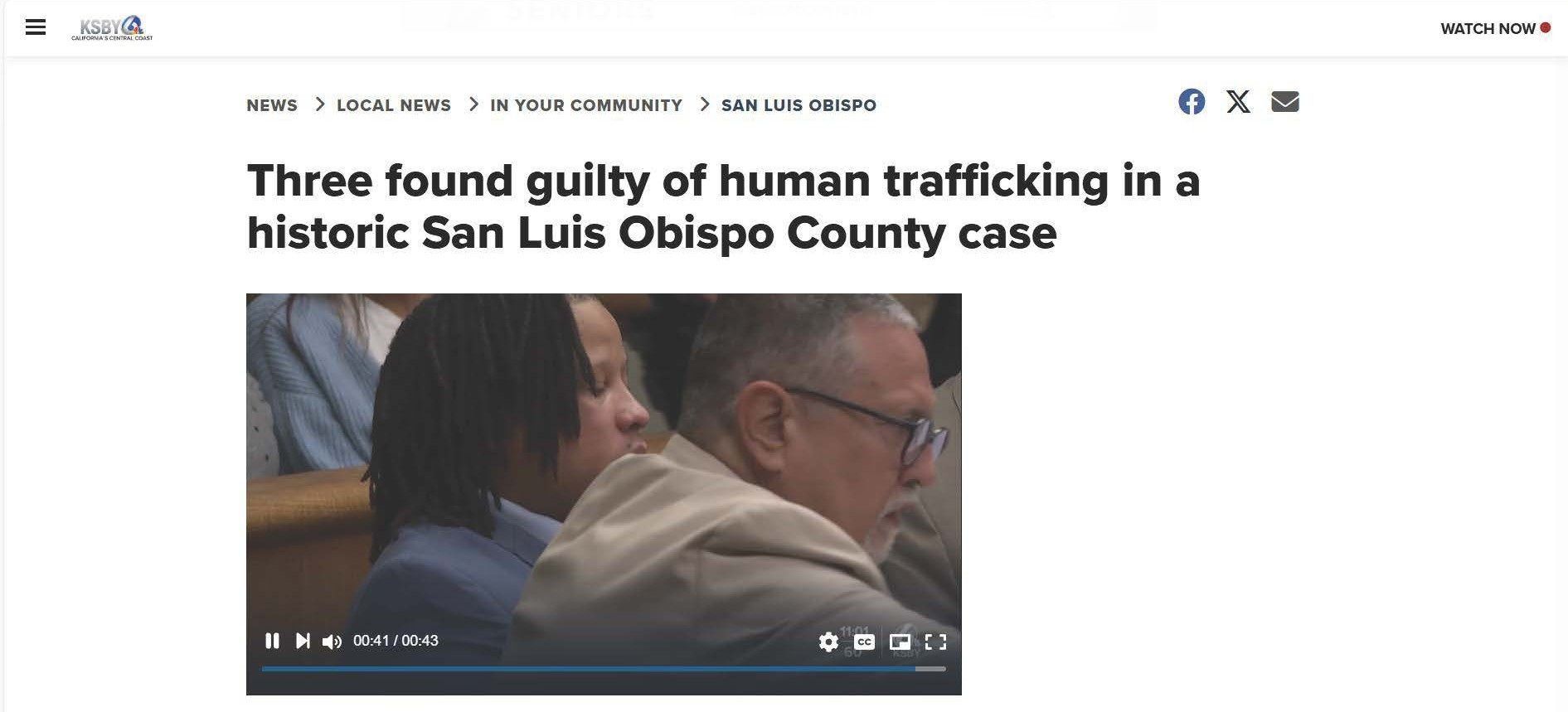


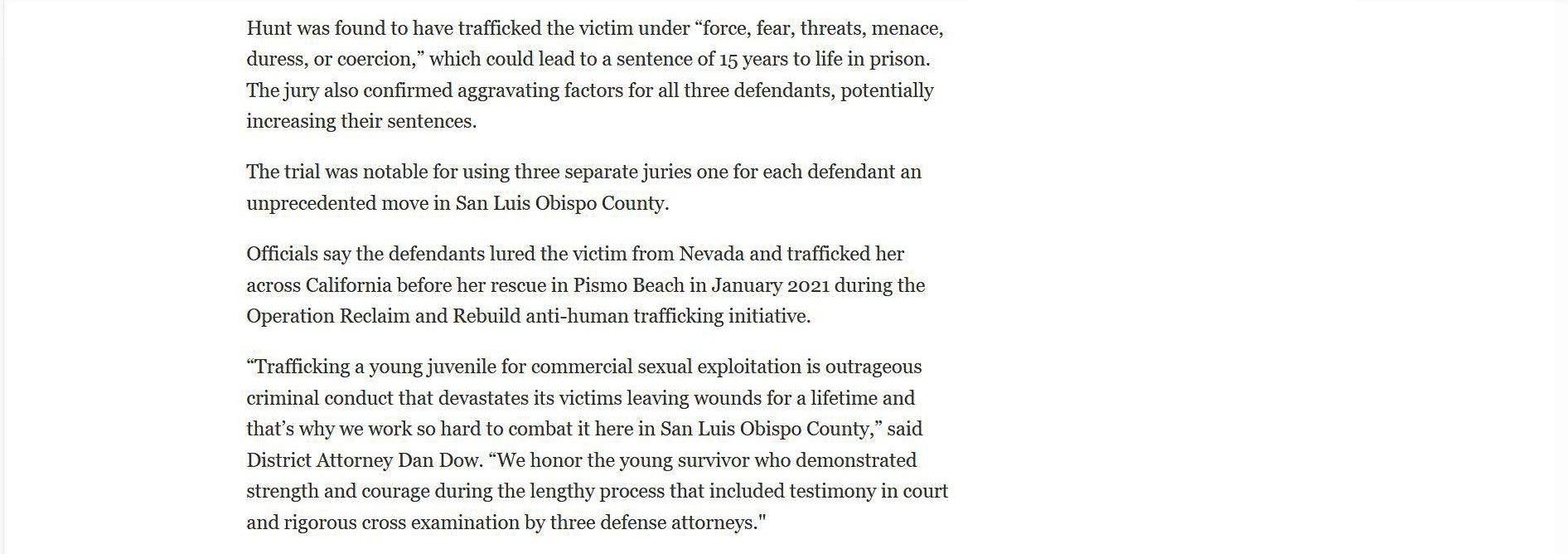

The Tribune quoted Addison and acknowledged that the outcome for Joshua was a tremendous victory. The other press outlets just adopted the district attorney's narrative even though it was misleading.

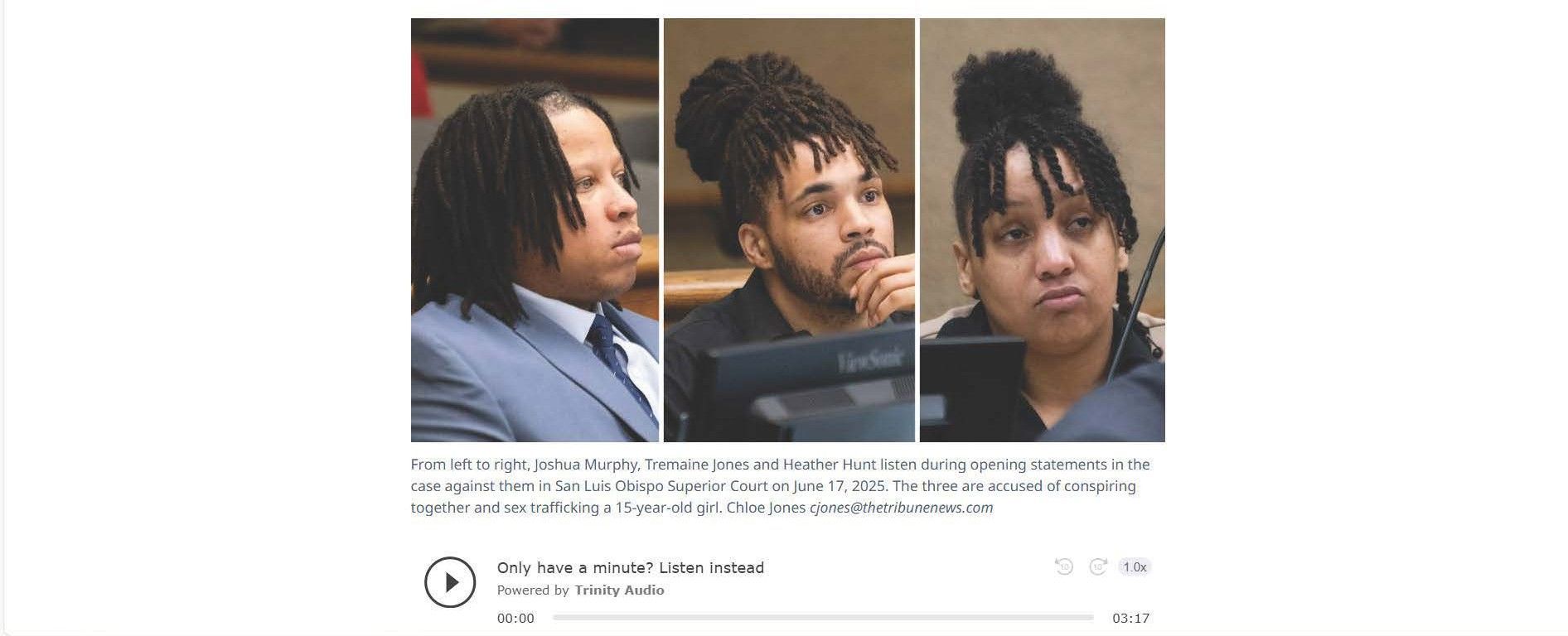



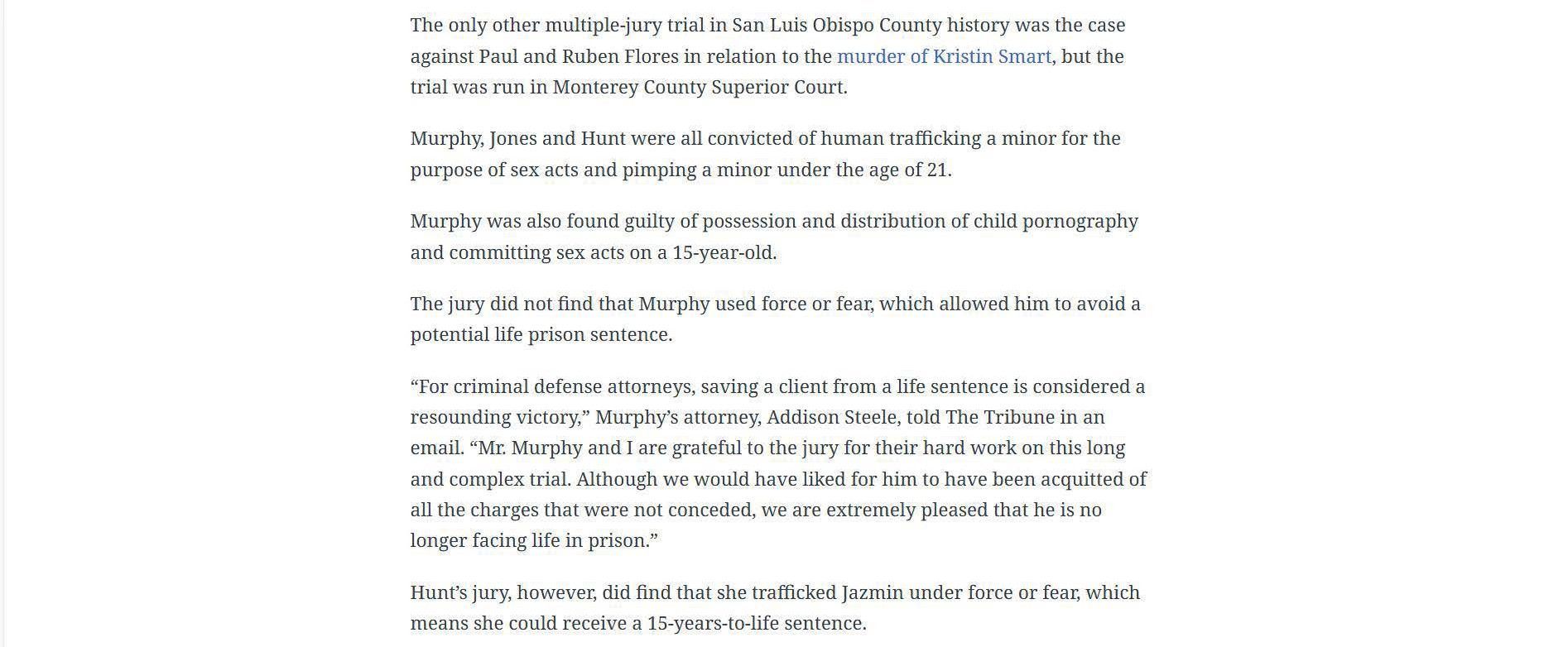

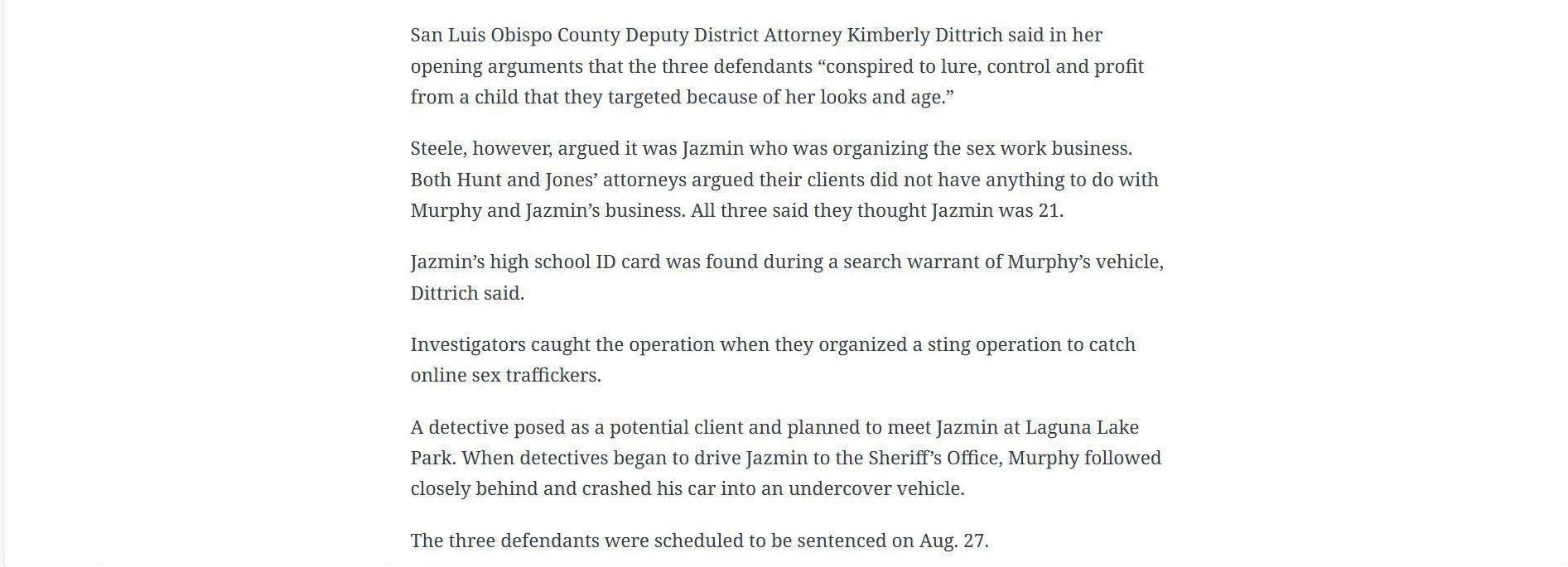
The article below illustrates the biased reporting that resulted from the San Luis Obispo County District Attorney's press release. The article doesn't mention that for two of the defendants the outcome was a tremendous victory. They were both saved from serving life in prison sentences. It also implies that Joshua Murphy was in possession of a cache of child pornography, which is not true. Joshua had a copy of the sex advertisements that Jazmin Doe had used to get prostitution customers. The evidence presented at the trial by Jazmin Doe was that she placed online ads. The article fails to mention that Jazmin Doe testified that she held herself out to be twenty years old in the dating application where Joshua and she met, and that she told co-defendant Heather Hunt that she was nineteen years old. The article does not mention that Joshua testified that he believed that Jazmin Doe was twenty years old and that any reasonable person that saw the photos of Jazmin Doe at the time would have believed that she was twenty years old, if not older. The article also say that Jazmin Doe was "lured" from her home in Nevada, when in fact Jazmin Doe testified that she went with the defendants voluntarily.
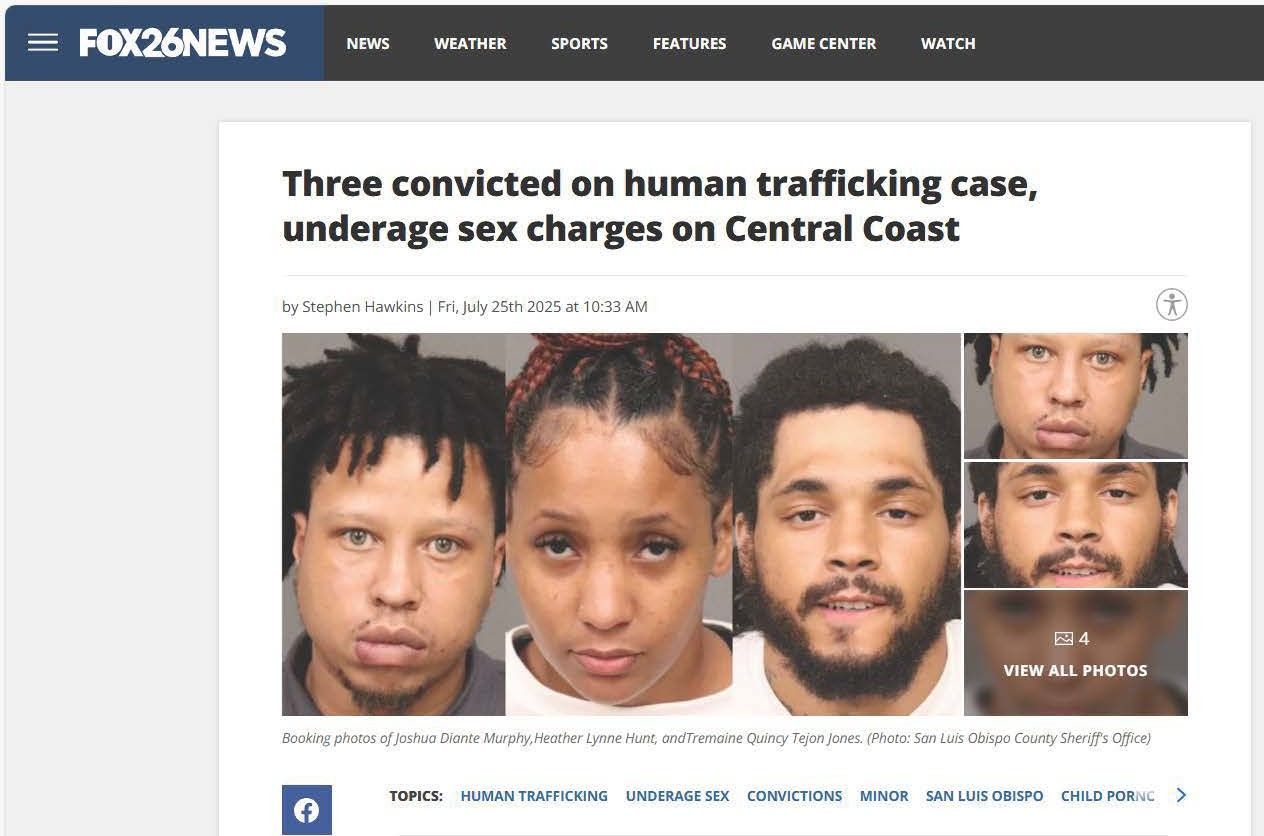
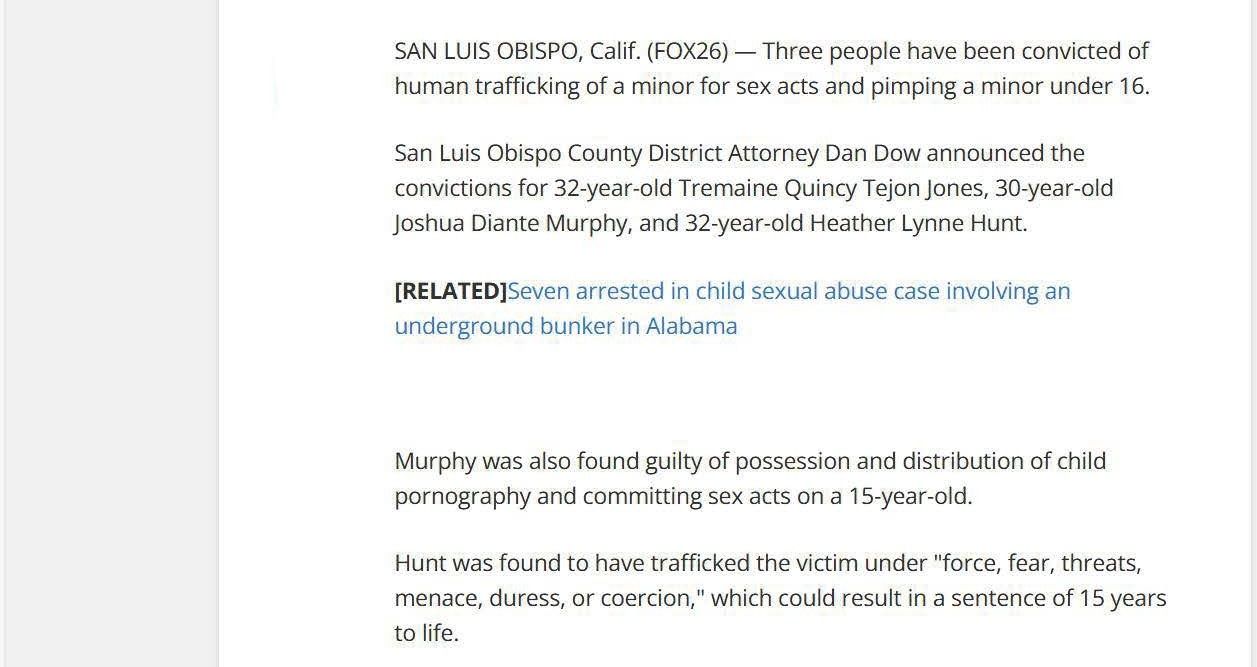
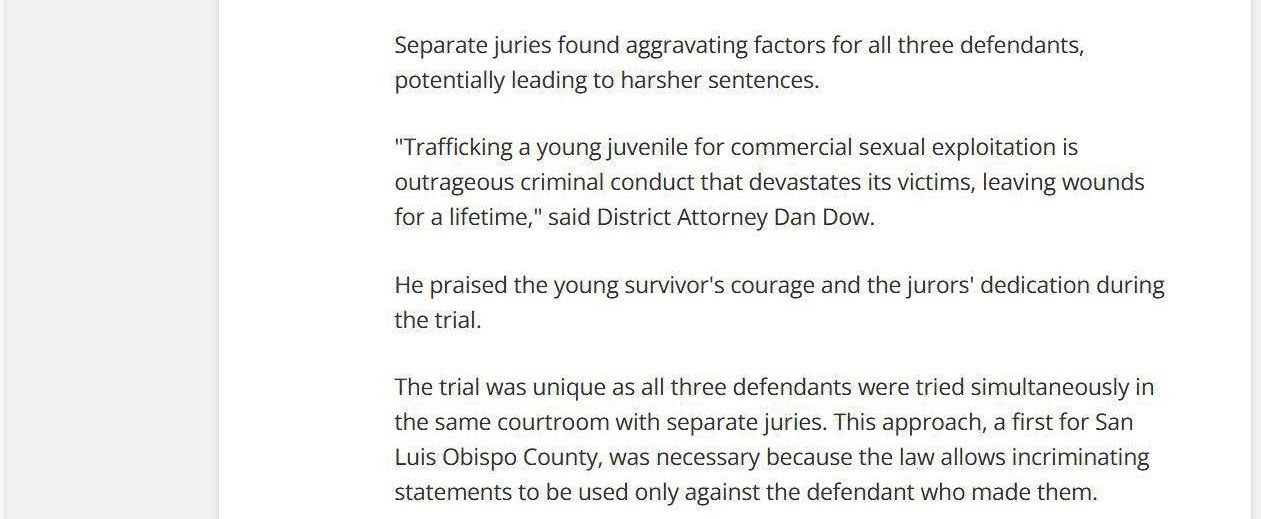
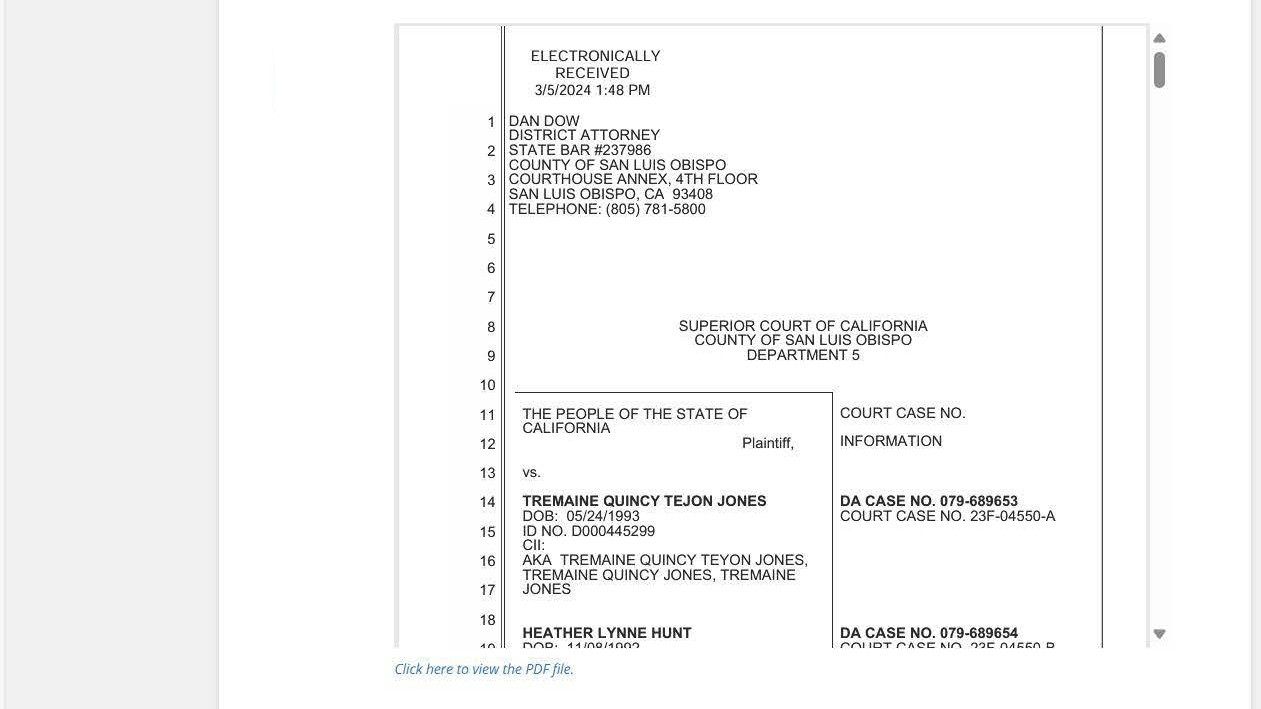

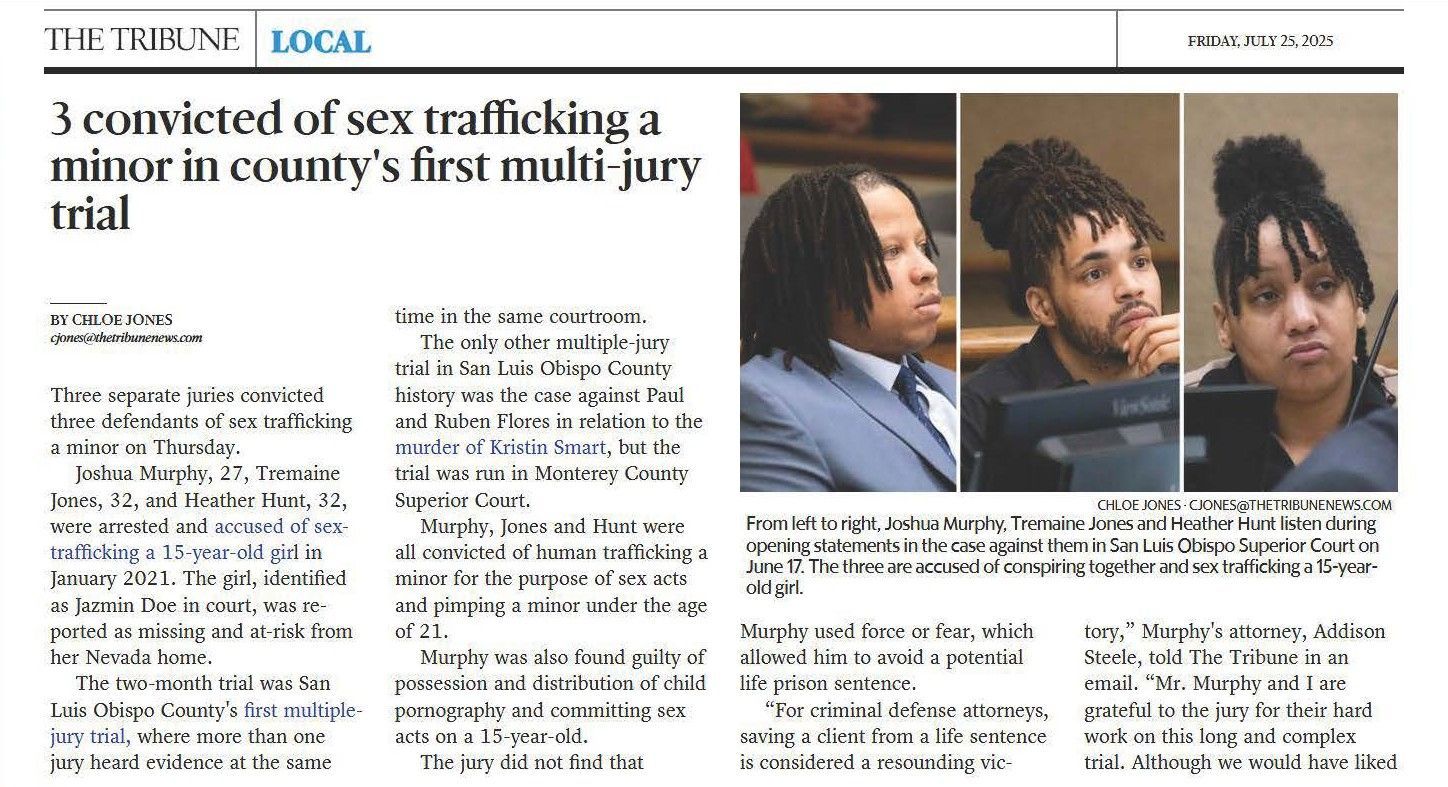
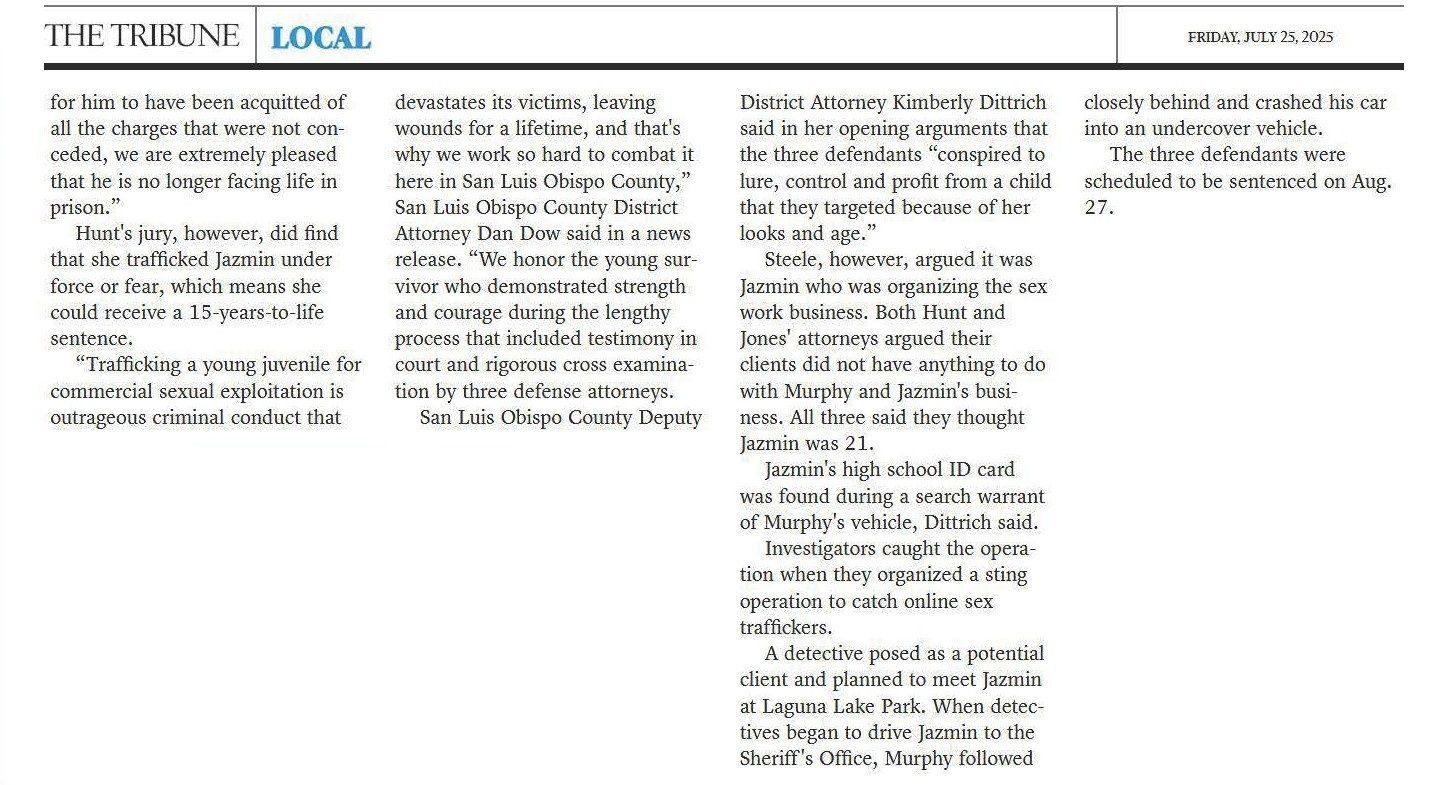
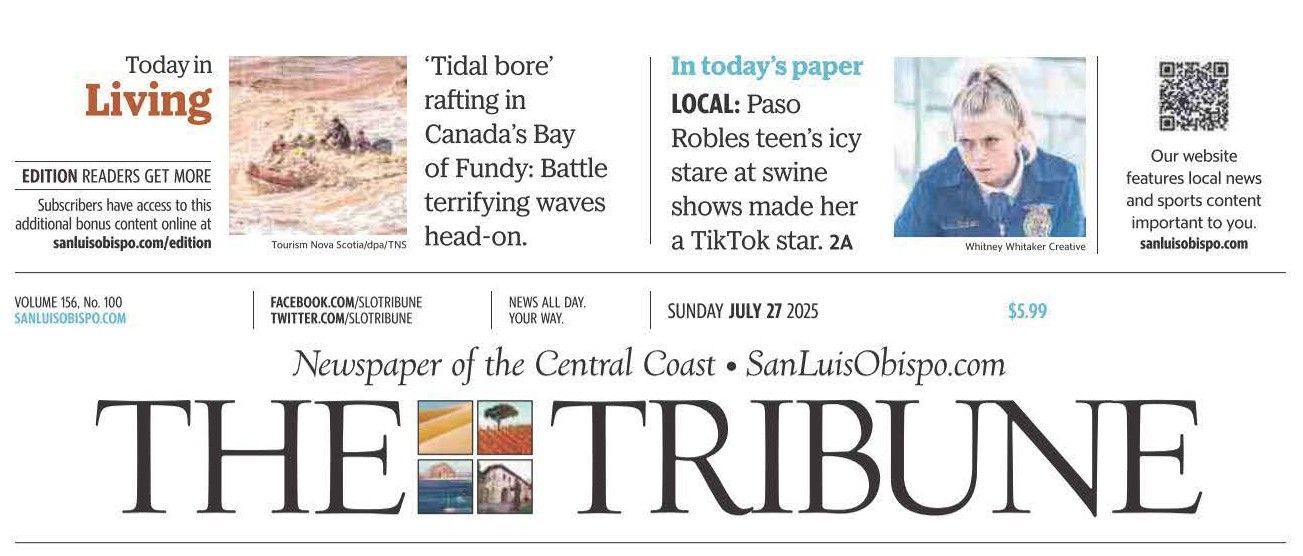
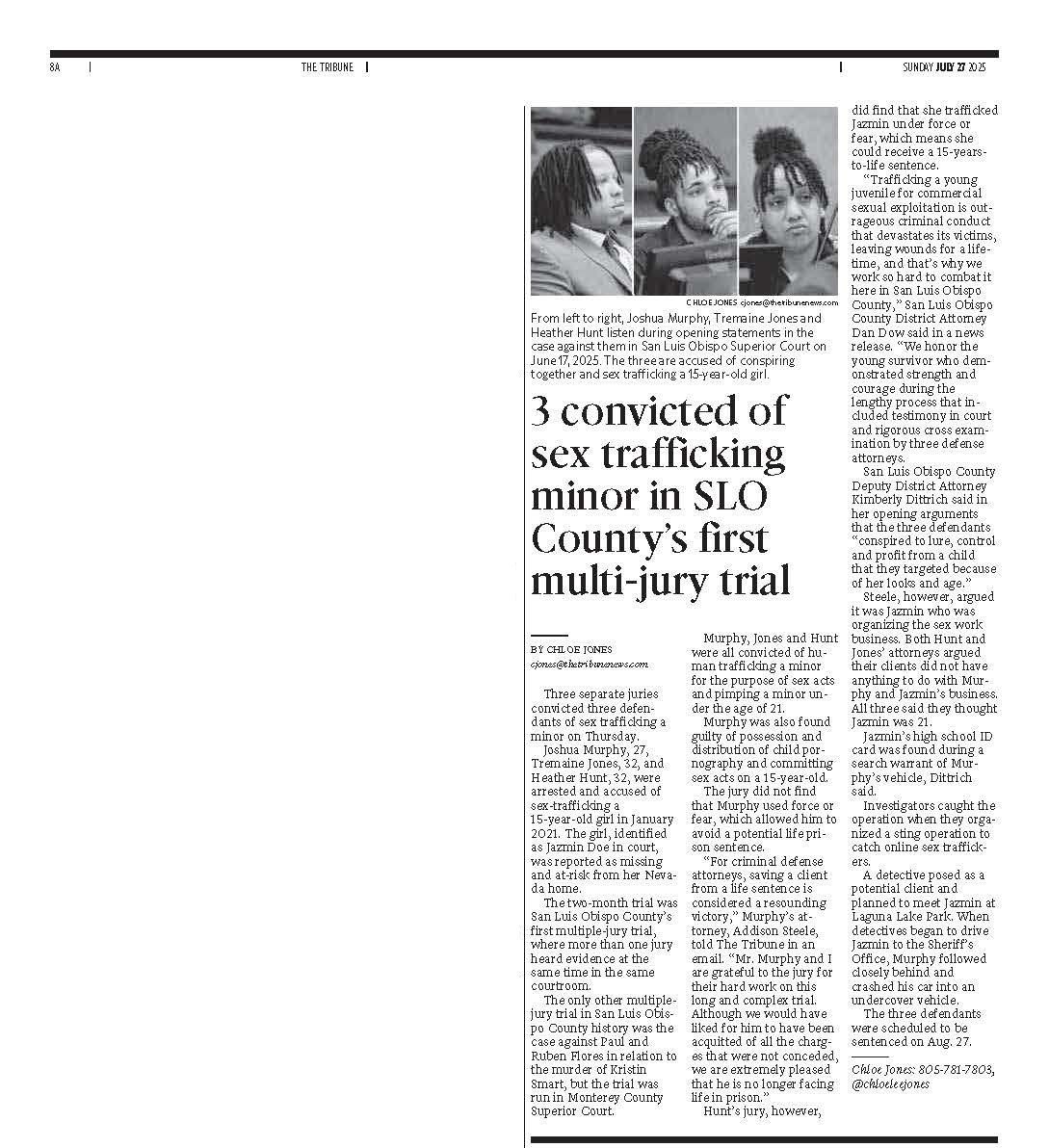
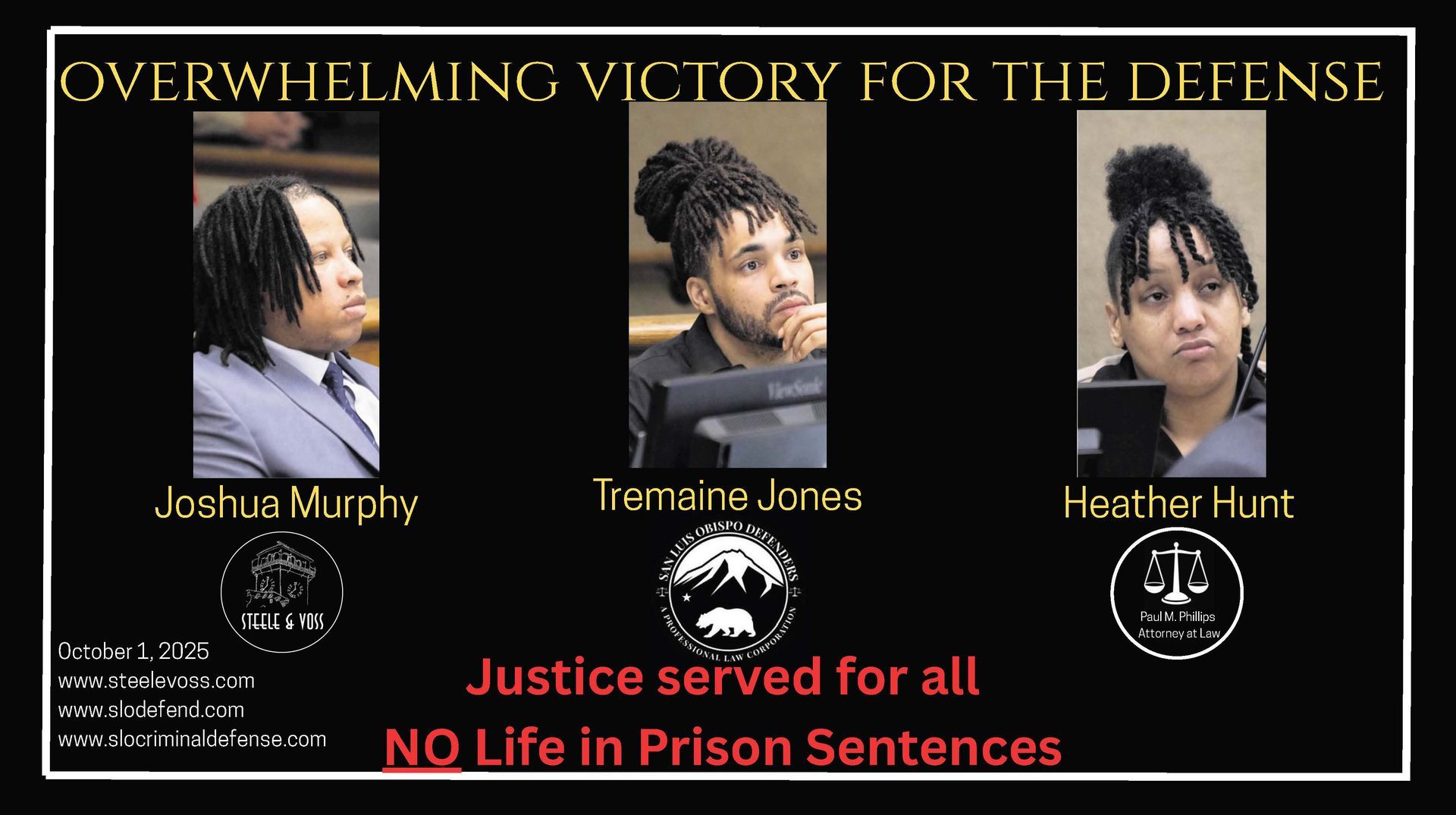
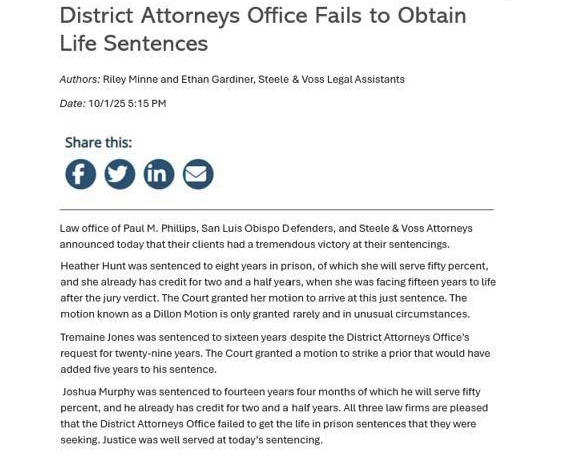
- Charges: Human Trafficking (Penal Code § 236.1(c)(2)), pimping a minor (Penal Code § 266h(b)(2)), possession of child pornography (Penal Code § 311.11(a)), distributing child pornography (Penal Code § 311.2(b)) and lewd act with a minor (Penal Code § 288(c)(1)). The case was both overcharged and creatively charged. For example, the possession and distribution of child pornography charges are meant for pedophiles that collect and sell or trade child pornography. In this case the "child pornography" was photos that were used in internet "escort" advertisements, many of which were selfies taken by the complaining witness (what district attorneys call "victim"), Jazmin Doe, and given to Josh. The "distribution" was the placing of the advertisements, which the complaining witness testified that she did and sometimes Josh did them for her. Another example is the lewd act with a minor charge. This is usually charged under Penal Code § 261.5, the typical charge for when a young person in his or her twenties has sex with a high school age person. An element of Penal Code § 261.5 is that the adult either needs to know, or a reasonable person would have known that the minor was a minor. In this case Jazmin Doe in no way resembled a minor, there was no chance that the DDA was going to convince twelve jurors that a reasonable person would have known she was a minor. However lewd act with a minor is essentially a strict liability crime, which means that it doesn't matter if the person accused knew the person was a minor, or if a reasonable person would have known the person was a minor, all the DDA has to prove is that the person was a minor. That means that not only was Josh automatically guilty for having sex with Jazmin Doe even though no reasonable person would have thought she was a minor, it means that all of her tricks (prostitution customers) were also guilty of the same crime, even though, they, like Josh, could not have been in any way expected to know that she was minor based on the way she looked.
- Exposure: Josh was facing seventeen years four months to life in prison.
- Outcome: In order to be convicted of a violation of Penal Code § 236.1(c)(2), human trafficking by force, fear, violence or coercion, the jury had to make a finding that there was force, fear, violence or coercion. If the jury made that finding Josh was subject to a mandatory sentence of fifteen years to life in prison. The jury found that allegation not true, so by operation of law, Josh was only convicted of a lesser offense of Penal Code § 236.1(c)(1), which was a maximum of twelve year WITHOUT a life sentence. He was sentenced in total to fourteen years four months at fifty percent. He had two years credit so he will be home in five years instead of having a life sentence and hoping to be granted parole at a parole hearing every two years after serving eighty-five percent of seventeen years four months.
October 1, 2025. This was a long hard fought human trafficking jury trial that Addison won. Any time when the client is facing a life in prison sentence and is saved from a life in prison, that is an overwhelming victory. This was a three co-defendants, three juries trial that started on May 19, 2025 and ended on July 24, 2025 with a verdict that saved Josh from a life sentence. The accusation was that Josh and his co-defendants went to Nevada to get a prostitute to transport to California in order to sex traffic her around the state. In reality, as came out in court during the trial, the "victim" was an experienced prostitute that Josh met on a dating site. Josh and his co-defendants picked up the prostitute because she wanted to travel around with them. As they traveled the prostitute, who knew the "game" (the business of prostitution) in California well, would leave the group to work the "blade" (a place where street prostitutes walk to solicit customers) in whichever city they happened to be in. She also placed internet prostitution advertisements. Eventually Josh began helping the prostitute by giving her rides to her customers or staying nearby as "security." The prostitute was caught in a police sting when an undercover detective answered one of her internet prostitution advertisements.
Human trafficking has become the crime of the day for law enforcement. They don't have much interest in catching prostitutes, they want to catch pimps so they can be charged with human trafficking. When the prostitute was caught, what the detectives, including an FBI agent, were most interested in was finding out if she had a pimp and who was that person. Pimping as defined by California law is not what most people believe it is. The law casts a wide net because the definition is essentially if a person gains or is supported in any way by the proceeds of a prostitute's work, that person is a pimp. An example is a person, we'll call him Adam, has a friend that's a prostitute, we'll call her Betty, and Betty in any way uses her prostitution income to benefit Adam, he's a pimp. So if Adam knows that Betty went to work prostituting, and at the end of her work day, Betty says, "Hey let's go get a cup of coffee," and Adam says, "Sure, I'll join you for a coffee." Then when they get to Starbucks, Betty says, "Let me buy today, I had a good night, it's my treat," and Adam accepts a cup of coffee from her, he's now a pimp. He now has been supported in whole or in part by Betty's work as a prostitute and under California law is a pimp. That may sound extreme, but that's the law that district attorneys rely on to convict people that they accuse of being a pimp. Human trafficking also is not what people think it is. When most people hear "human trafficking" they think of someone being transported and held against his or her will and forced to work, and when people hear "sex trafficking," they think of someone being transported and held against his or her will and being forced into prostitution. The definition in California law is not even close to that.
The law is that if a person does as little as coerce a prostitute to work, that person is a human trafficker. So if Adam says to Betty, "You had better go out and work tonight or you're not going to be able to buy food and will go hungry," he is coercing her to engaged in prostitution and is a human sex trafficker. The context does matter, a jury could find that Adam meant, "You better go out and work tonight or you're not going to be able to buy food and will go hungry, and it's a terrible tragedy that this is your only means of survival, buy I guess you need to do what you need to do to survive, and I certainly don't want any proceeds from it," and possibly not find that Adam coerced Betty into working, but there's no guarantee, a jury could just as easily be convinced the Adam did coerce Betty into working. A jury could just as easily decide that what he meant was, "You had better go out and work tonight or you're not going to be able to buy food and will go hungry, and I'm not going to help you, you need to get out there and earn money and then buy me dinner when you get back," in which case Adam most certainly will be found to have coerced Betty. It may seem like an extreme example, but these are the kinds of arguments that deputy district attorneys make to juries. In some cases the punishment for human trafficking can be extreme. One type carries a maximum of twenty years in prison and another type carries a sentence of fifteen years to life in prison.
In Josh's case the jury found that he persuaded the prostitute, but did not use force or fear or coerce her. The difference in those those words was the difference between Josh getting a minimum sentence of fifteen years to life and more likely a seventeen years four months to life sentence. If Josh had gotten a seventeen years months to life sentence, he would have had to serve eighty-five percent of that sentence and then would have gotten parole hearing. If he was not released after the parole hearing he would then get parole hearings every two or five years until he was released or died in prison. The difference in the jury's findings regarding those words saved him from a life in prison sentence.
Josh did get what defense attorneys call the victory tax. The victory tax is when a jury saves a defendant from a life sentence and then the judge sentences to the maximum of everything that's left. This is a very common phenomenon. As a matter of fact, it's rare when after winning the life sentence counts or allegations that the judge does not impose the victory tax (although Steele & Voss have had some exceptions (People v. Zavala RIF131949, People v. Angulo RIF126653 and People v. Lopez SB225068, all of whom, like Josh, had no prior record whatsoever). Josh did get the victory tax which meant a fourteen year four months sentence. However, because the life sentence allegation was won with the jury, that sentence is served at fifty percent, so that makes the sentence seven years two months, and he has two years credit, so in roughly five years he'll be home, and if he takes advantage of the programs that are offered in prison he could be home in less than three years.
That's a significantly better outcome than spending the rest of his life in prison. As said above, if the life sentence enhancement had been lost, Josh would have had to serve eighty-five percent of seventeen years four months and then start to get parole hearings either every two or five years and hope to win the parole hearing so he could go home.
This is the article from when Addison was on television after the sentencing. He told the reporter that it was an overwhelming defense victory for all three defendants. Josh and Tre were saved from a life sentence by the jury. Lynne was saved from a life sentence by the judge.
